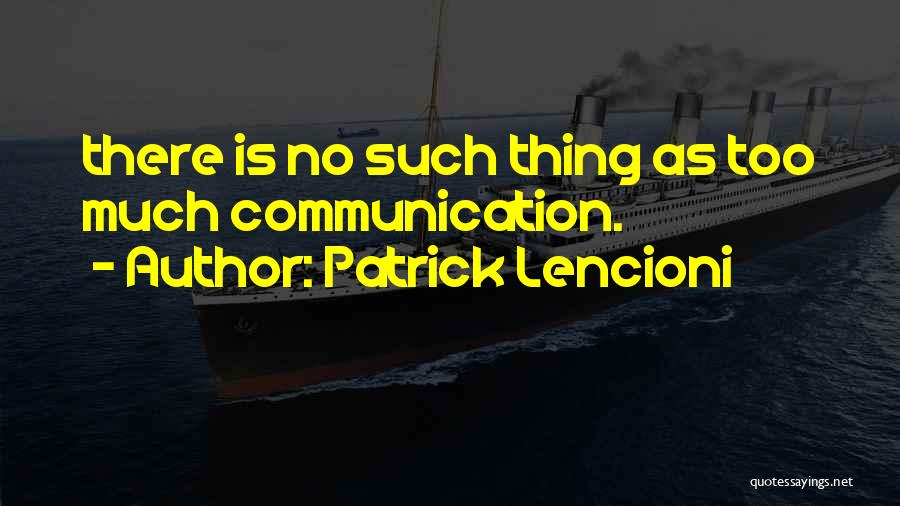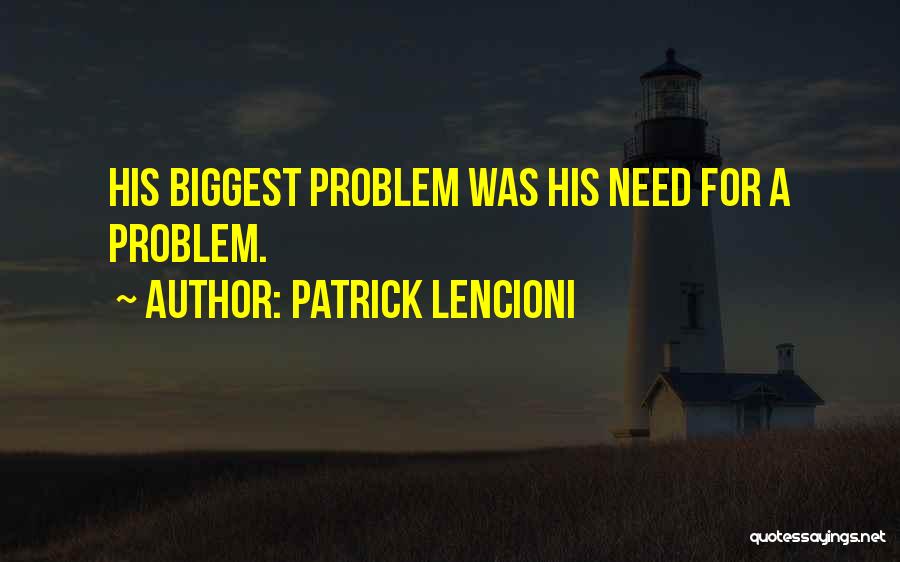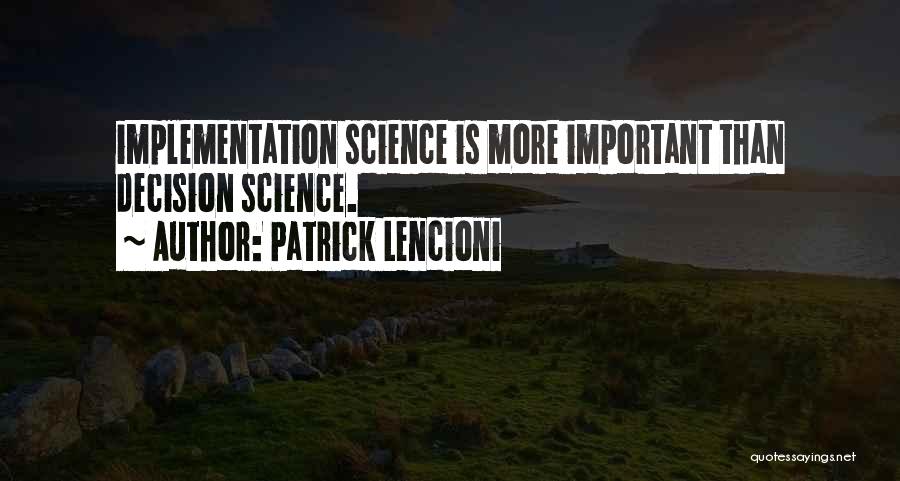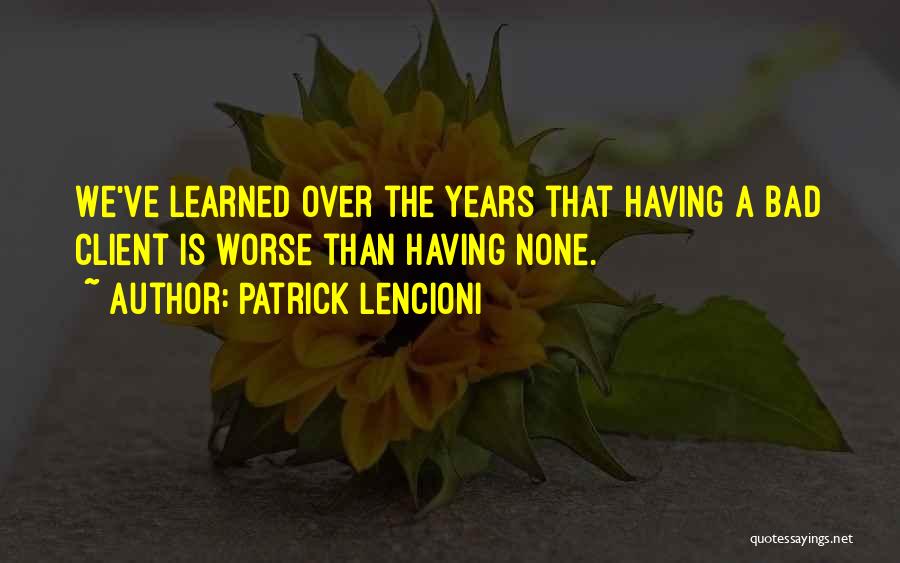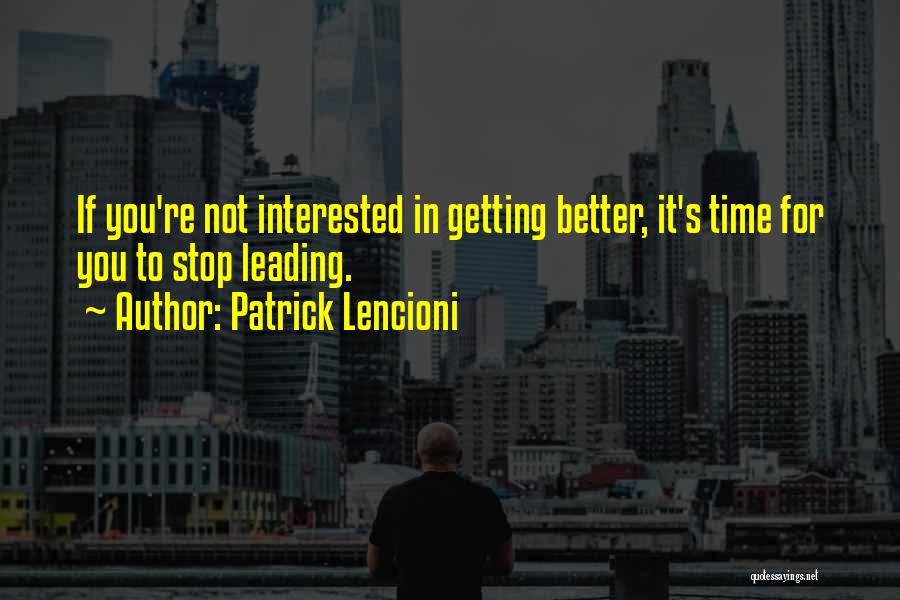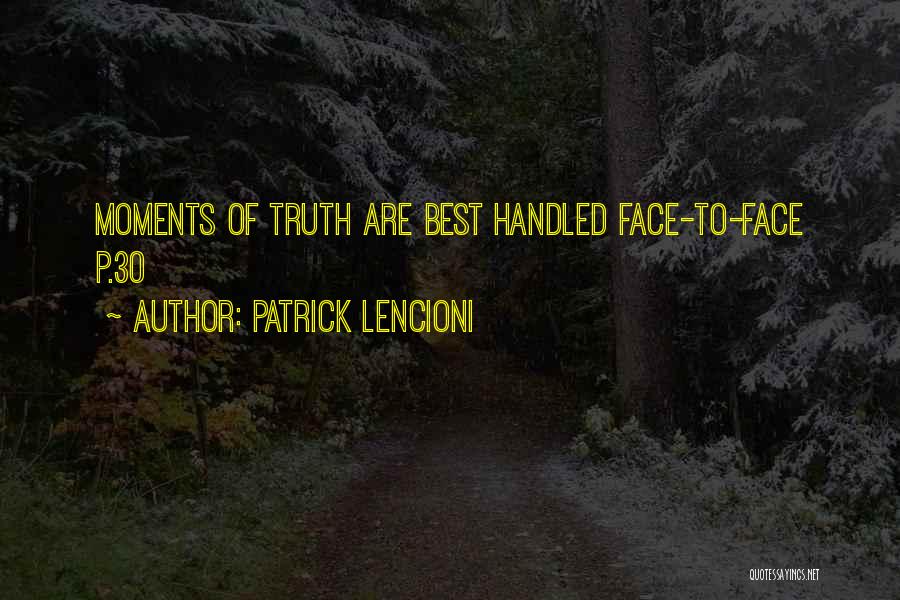Patrick Lencioni Quotes & Sayings
Enjoy the top 100 famous quotes, sayings and quotations by Patrick Lencioni.
Famous Quotes By Patrick Lencioni
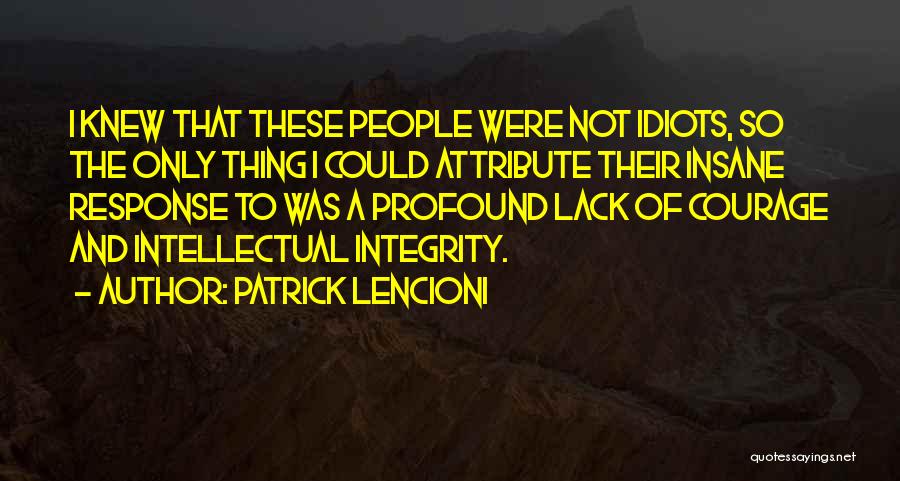
I knew that these people were not idiots, so the only thing I could attribute their insane response to was a profound lack of courage and intellectual integrity. — Patrick Lencioni
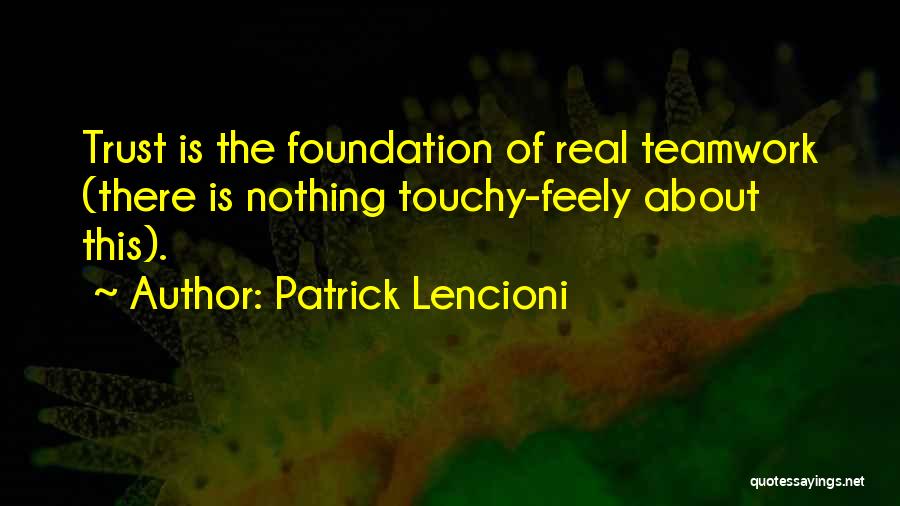
Trust is the foundation of real teamwork (there is nothing touchy-feely about this). — Patrick Lencioni

At its core, naked service boils down to the ability of a service provider to be vulnerable - to embrace uncommon levels of humility, selflessness, and transparency for the good of a client. — Patrick Lencioni
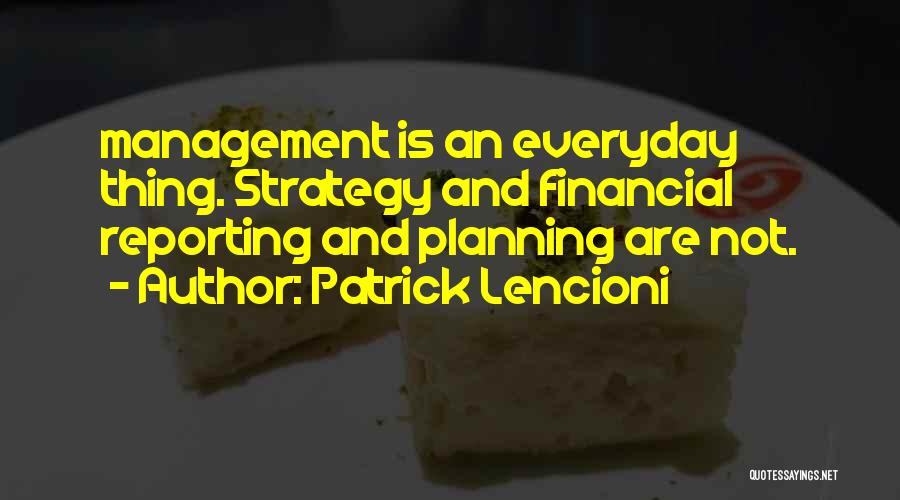
management is an everyday thing. Strategy and financial reporting and planning are not. — Patrick Lencioni

Members of trusting teams accept questions and input about their areas or responsibility, appreciate and tap into one another's skills and experiences, and look forward to meetings and other opportunities to work as a group. — Patrick Lencioni
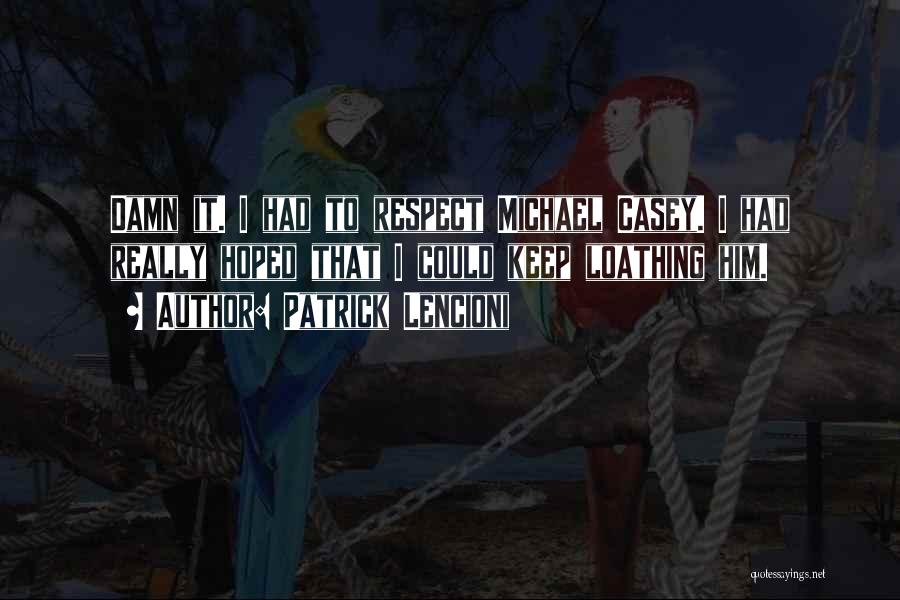
Damn it. I had to respect Michael Casey. I had really hoped that I could keep loathing him. — Patrick Lencioni
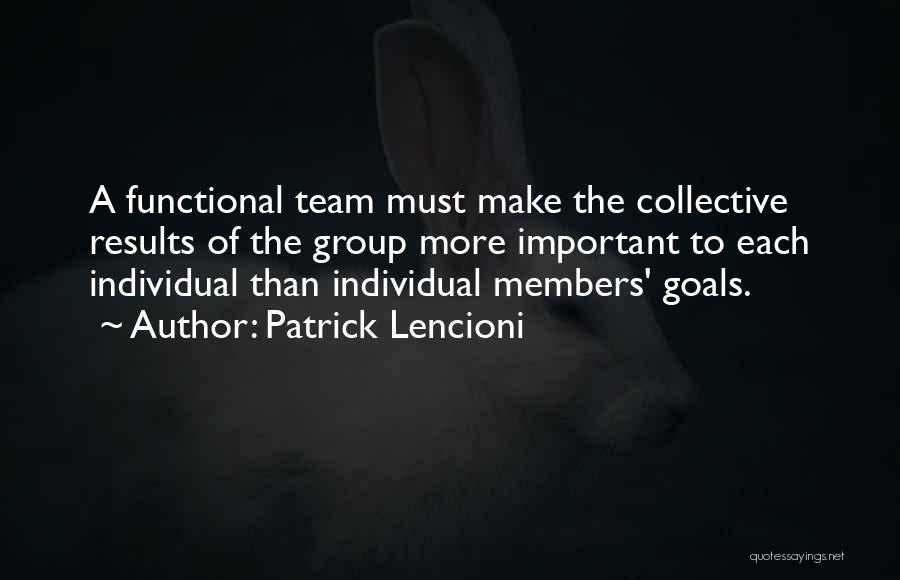
A functional team must make the collective results of the group more important to each individual than individual members' goals. — Patrick Lencioni
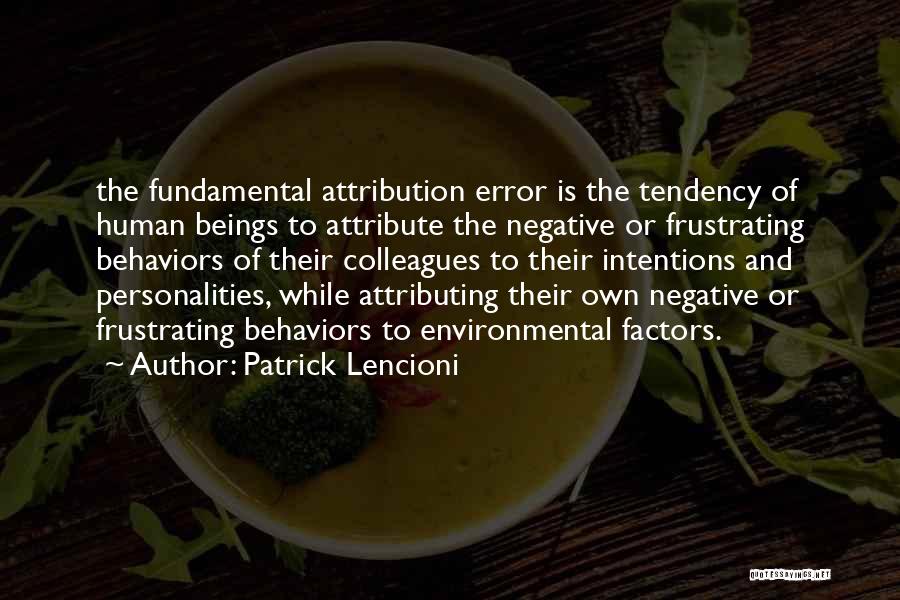
the fundamental attribution error is the tendency of human beings to attribute the negative or frustrating behaviors of their colleagues to their intentions and personalities, while attributing their own negative or frustrating behaviors to environmental factors. — Patrick Lencioni
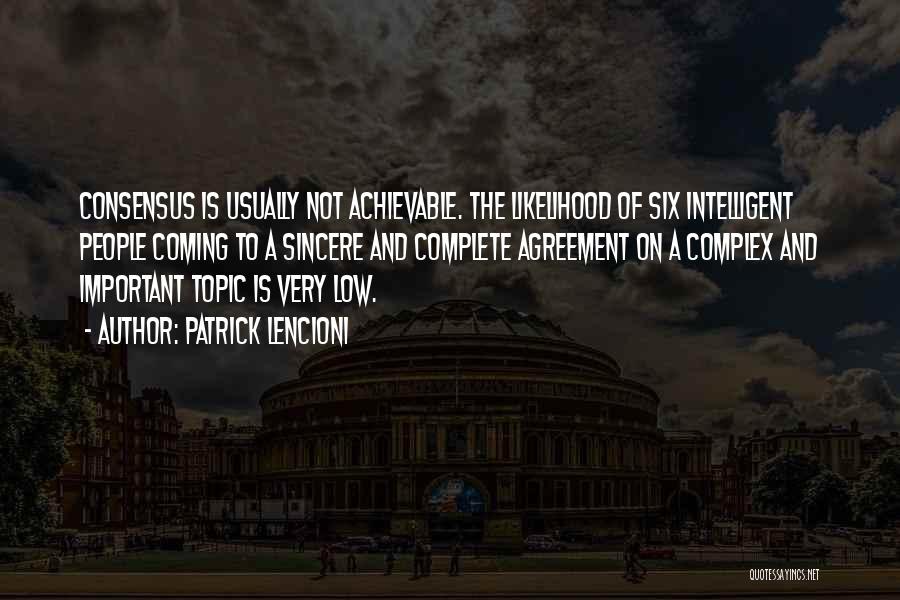
consensus is usually not achievable. The likelihood of six intelligent people coming to a sincere and complete agreement on a complex and important topic is very low. — Patrick Lencioni
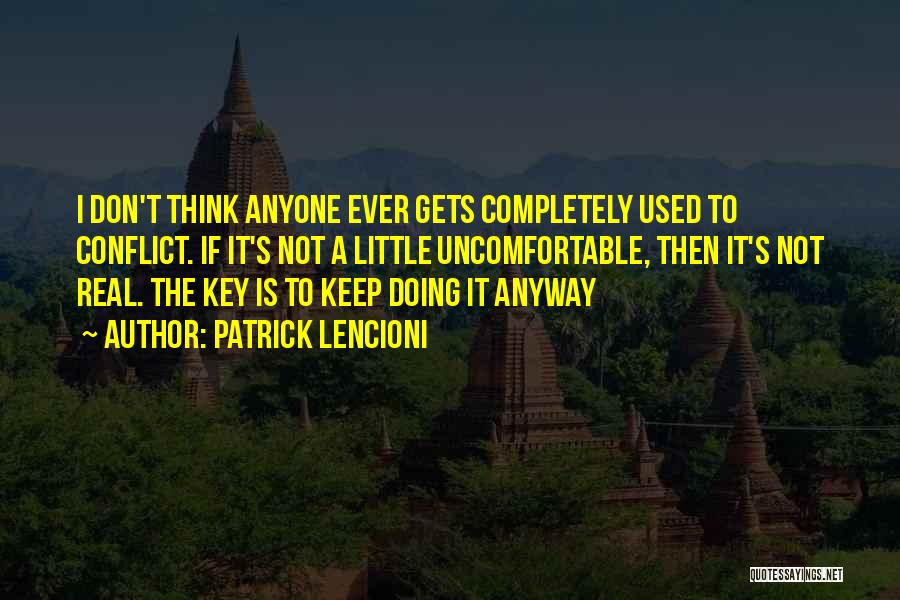
I don't think anyone ever gets completely used to conflict. If it's not a little uncomfortable, then it's not real. The key is to keep doing it anyway — Patrick Lencioni
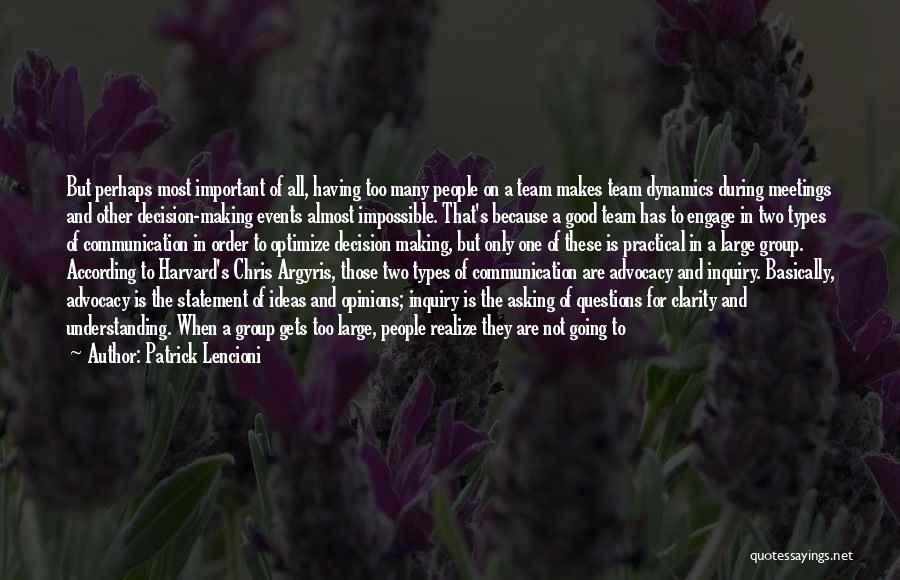
But perhaps most important of all, having too many people on a team makes team dynamics during meetings and other decision-making events almost impossible. That's because a good team has to engage in two types of communication in order to optimize decision making, but only one of these is practical in a large group. According to Harvard's Chris Argyris, those two types of communication are advocacy and inquiry. Basically, advocacy is the statement of ideas and opinions; inquiry is the asking of questions for clarity and understanding. When a group gets too large, people realize they are not going to get the floor back any time soon, so they resort almost exclusively to advocacy. It becomes like Congress (which is not designed to be a team) or the United Nations (ditto). — Patrick Lencioni
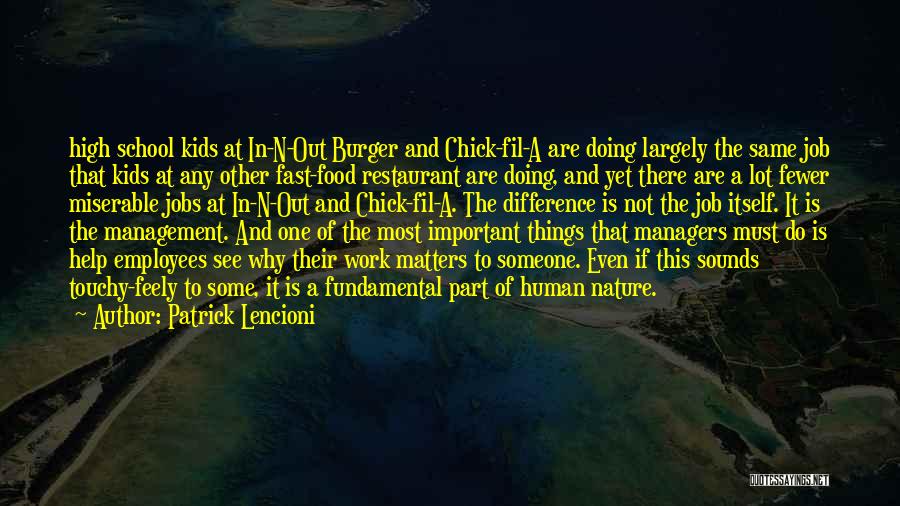
high school kids at In-N-Out Burger and Chick-fil-A are doing largely the same job that kids at any other fast-food restaurant are doing, and yet there are a lot fewer miserable jobs at In-N-Out and Chick-fil-A. The difference is not the job itself. It is the management. And one of the most important things that managers must do is help employees see why their work matters to someone. Even if this sounds touchy-feely to some, it is a fundamental part of human nature. — Patrick Lencioni
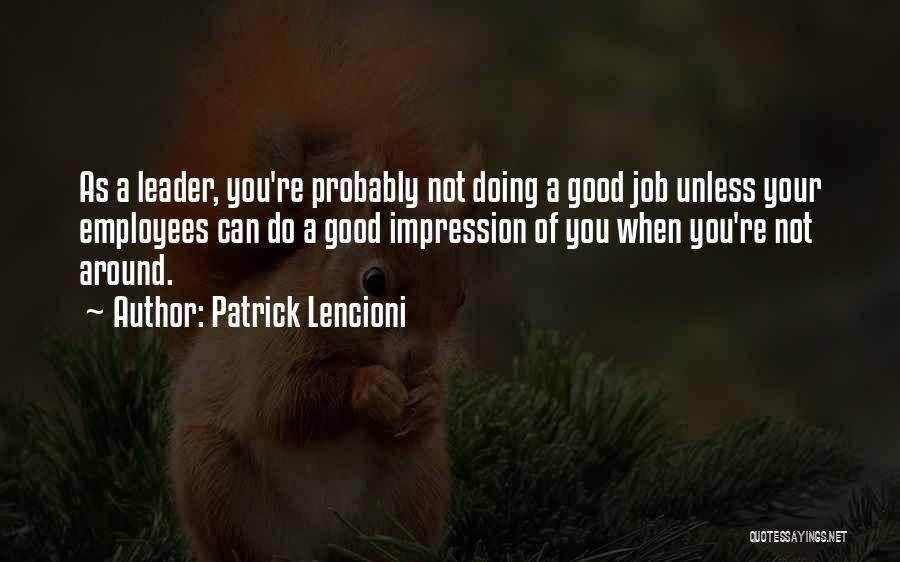
As a leader, you're probably not doing a good job unless your employees can do a good impression of you when you're not around. — Patrick Lencioni
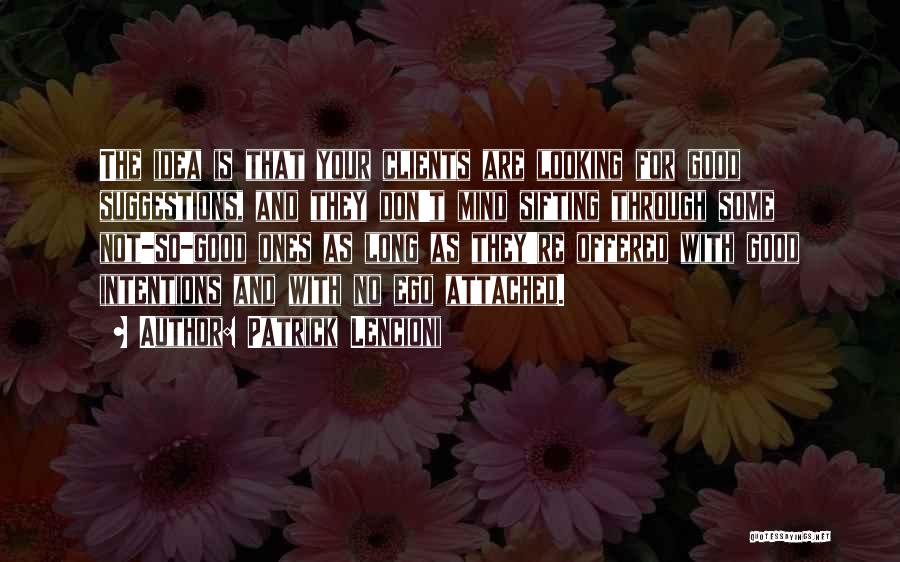
The idea is that your clients are looking for good suggestions, and they don't mind sifting through some not-so-good ones as long as they're offered with good intentions and with no ego attached. — Patrick Lencioni
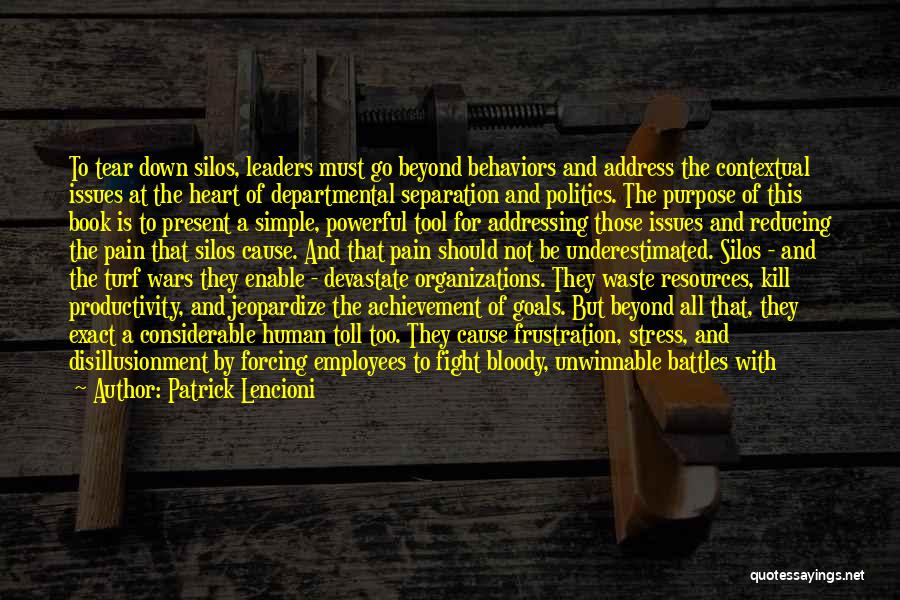
To tear down silos, leaders must go beyond behaviors and address the contextual issues at the heart of departmental separation and politics. The purpose of this book is to present a simple, powerful tool for addressing those issues and reducing the pain that silos cause. And that pain should not be underestimated. Silos - and the turf wars they enable - devastate organizations. They waste resources, kill productivity, and jeopardize the achievement of goals. But beyond all that, they exact a considerable human toll too. They cause frustration, stress, and disillusionment by forcing employees to fight bloody, unwinnable battles with people who should be their teammates. There is perhaps no greater cause of professional anxiety and exasperation - not to mention turnover - than employees having to fight with people in their own organization. Understandably and inevitably, this bleeds over into their personal lives, affecting family and friends in profound ways. — Patrick Lencioni
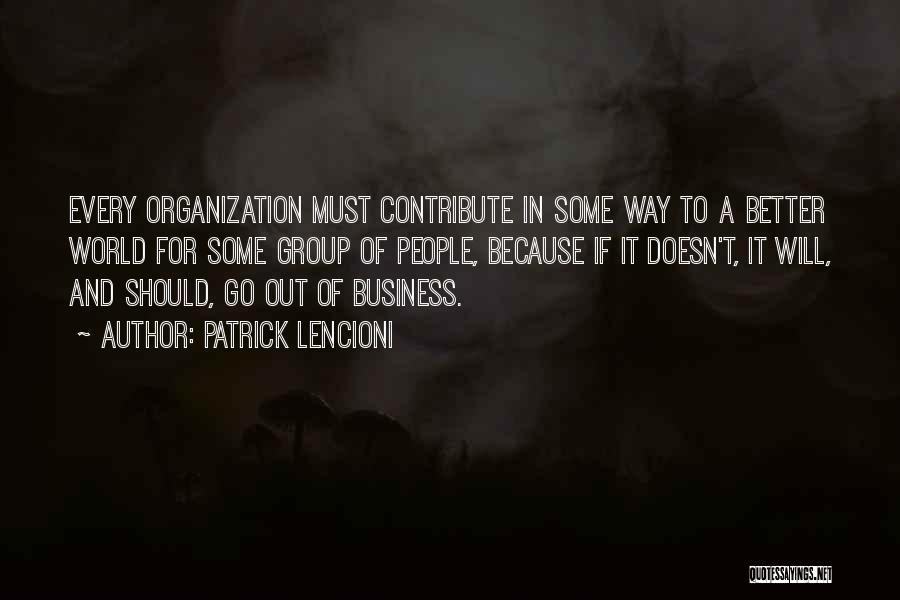
every organization must contribute in some way to a better world for some group of people, because if it doesn't, it will, and should, go out of business. — Patrick Lencioni
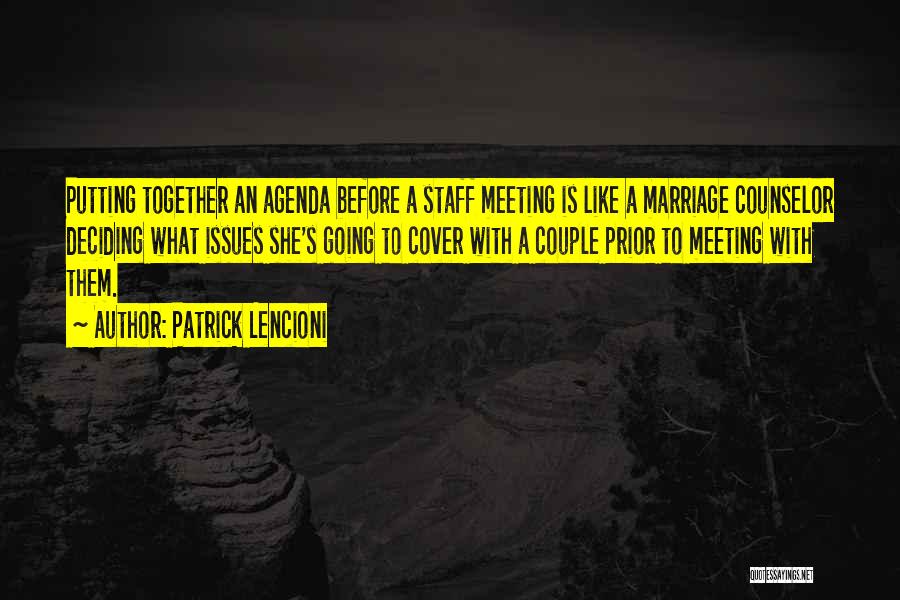
Putting together an agenda before a staff meeting is like a marriage counselor deciding what issues she's going to cover with a couple prior to meeting with them. — Patrick Lencioni

The lack of conflict is precisely the cause of one of the biggest problems that meetings have: they are boring — Patrick Lencioni
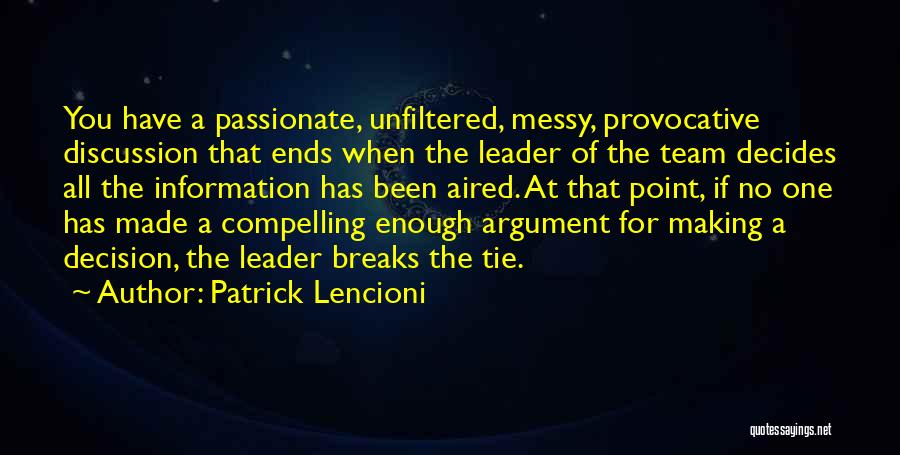
You have a passionate, unfiltered, messy, provocative discussion that ends when the leader of the team decides all the information has been aired. At that point, if no one has made a compelling enough argument for making a decision, the leader breaks the tie. — Patrick Lencioni
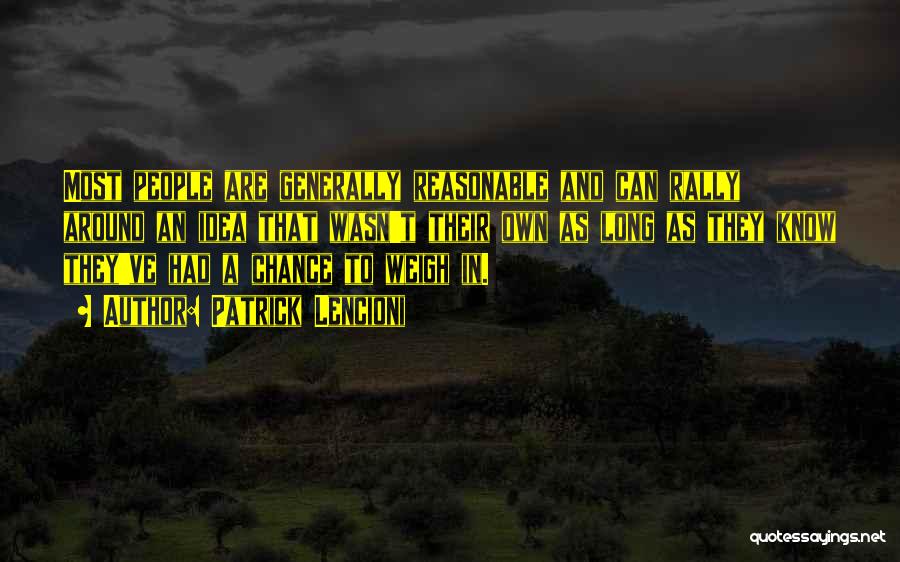
Most people are generally reasonable and can rally around an idea that wasn't their own as long as they know they've had a chance to weigh in. — Patrick Lencioni
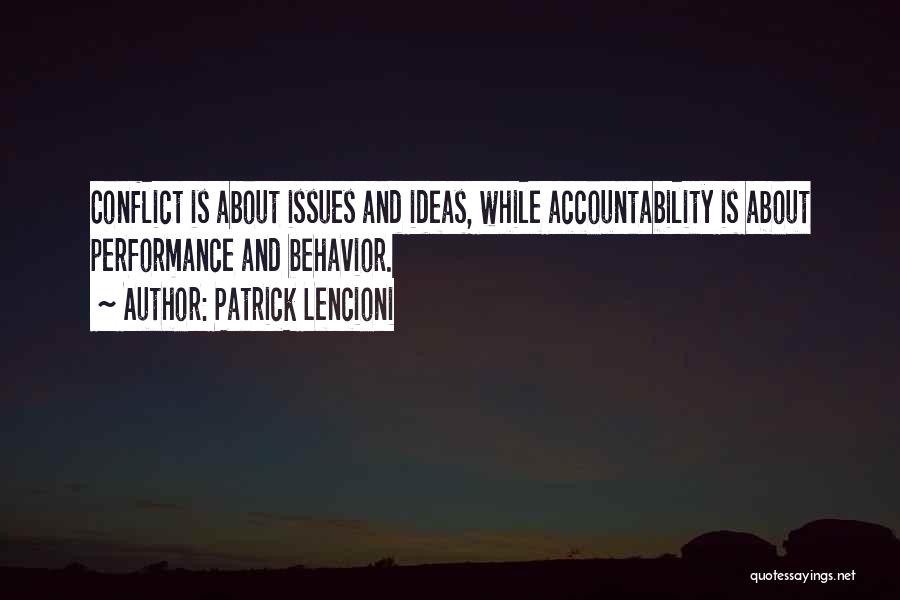
Conflict is about issues and ideas, while accountability is about performance and behavior. — Patrick Lencioni
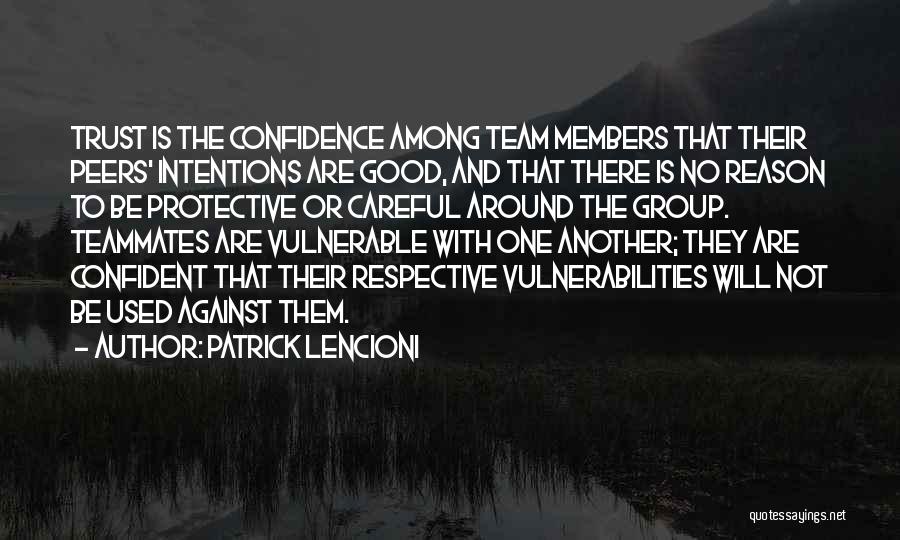
Trust is the confidence among team members that their peers' intentions are good, and that there is no reason to be protective or careful around the group. Teammates are vulnerable with one another; they are confident that their respective vulnerabilities will not be used against them. — Patrick Lencioni
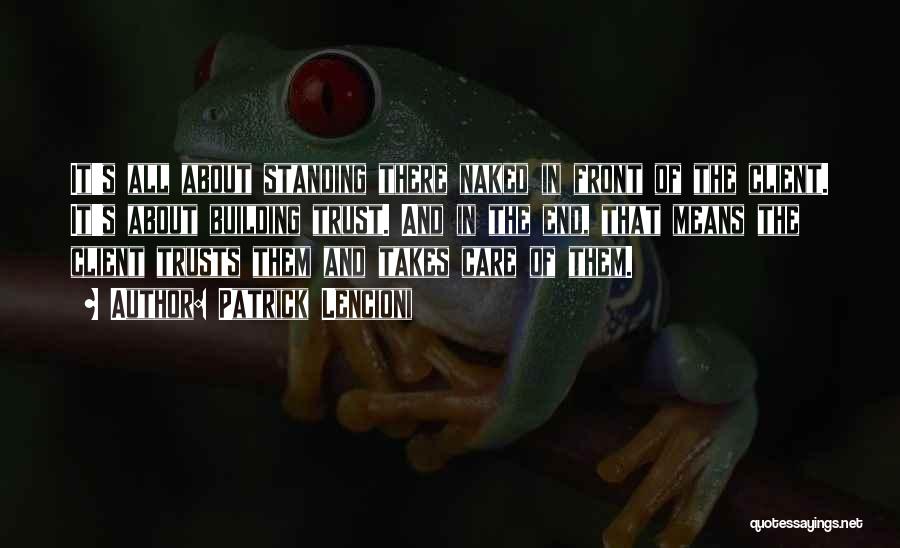
It's all about standing there naked in front of the client. It's about building trust. And in the end, that means the client trusts them and takes care of them. — Patrick Lencioni
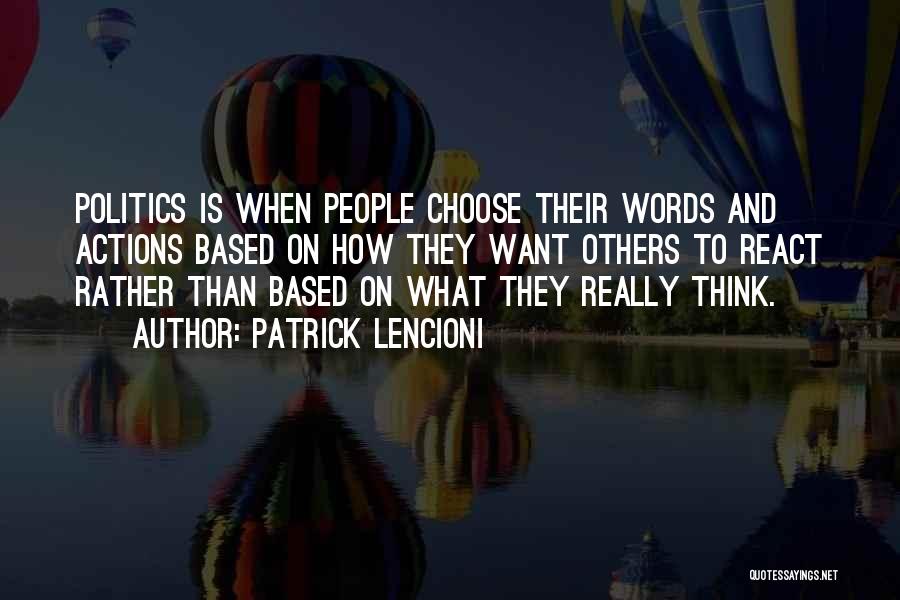
Politics is when people choose their words and actions based on how they want others to react rather than based on what they really think. — Patrick Lencioni
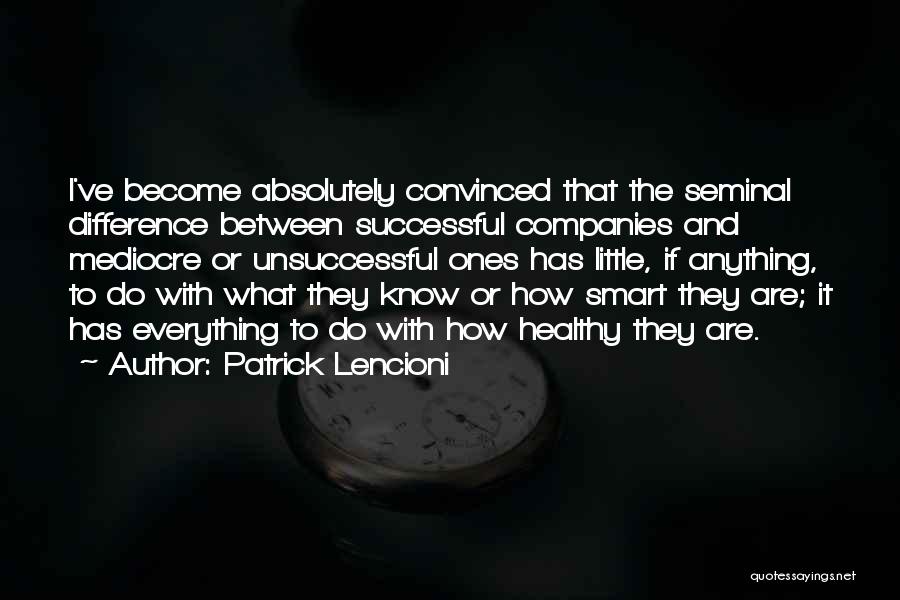
I've become absolutely convinced that the seminal difference between successful companies and mediocre or unsuccessful ones has little, if anything, to do with what they know or how smart they are; it has everything to do with how healthy they are. — Patrick Lencioni
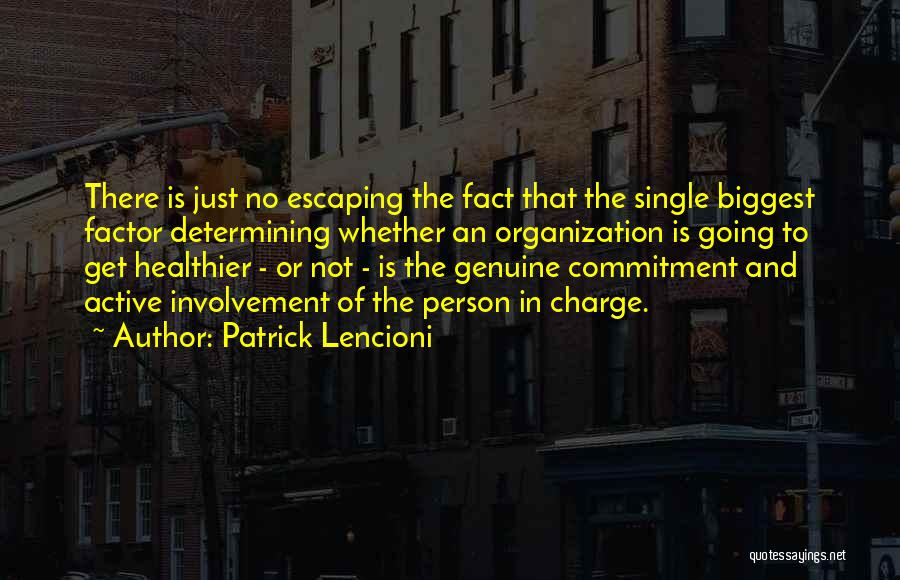
There is just no escaping the fact that the single biggest factor determining whether an organization is going to get healthier - or not - is the genuine commitment and active involvement of the person in charge. — Patrick Lencioni
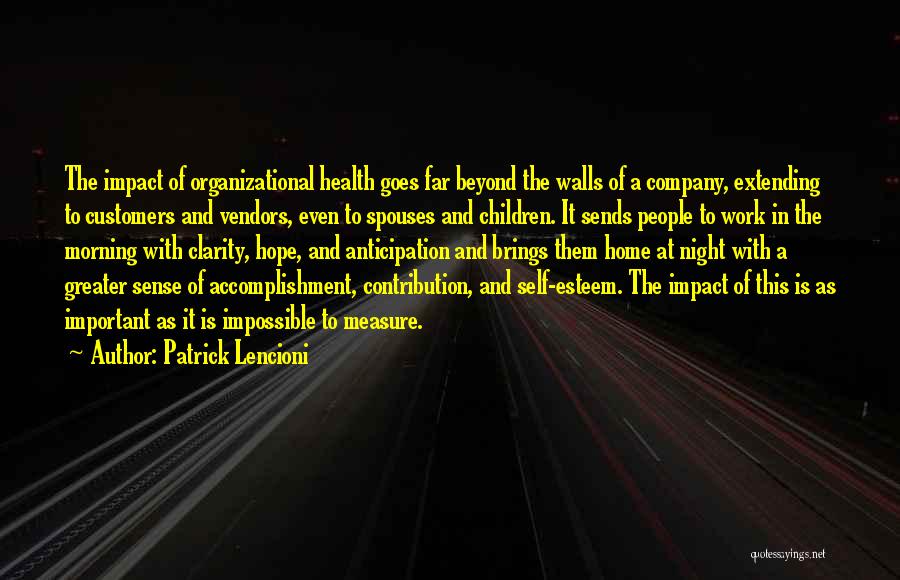
The impact of organizational health goes far beyond the walls of a company, extending to customers and vendors, even to spouses and children. It sends people to work in the morning with clarity, hope, and anticipation and brings them home at night with a greater sense of accomplishment, contribution, and self-esteem. The impact of this is as important as it is impossible to measure. — Patrick Lencioni
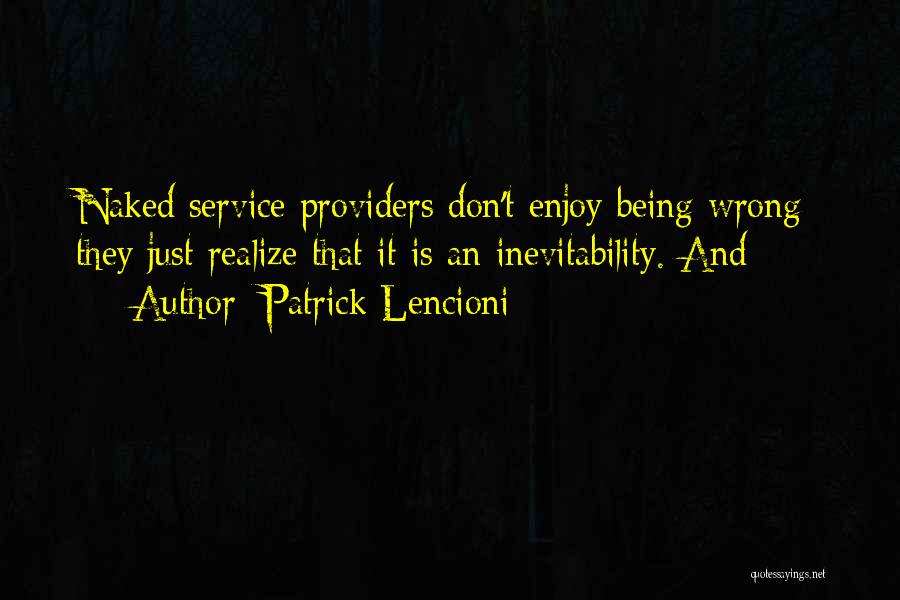
Naked service providers don't enjoy being wrong; they just realize that it is an inevitability. And — Patrick Lencioni
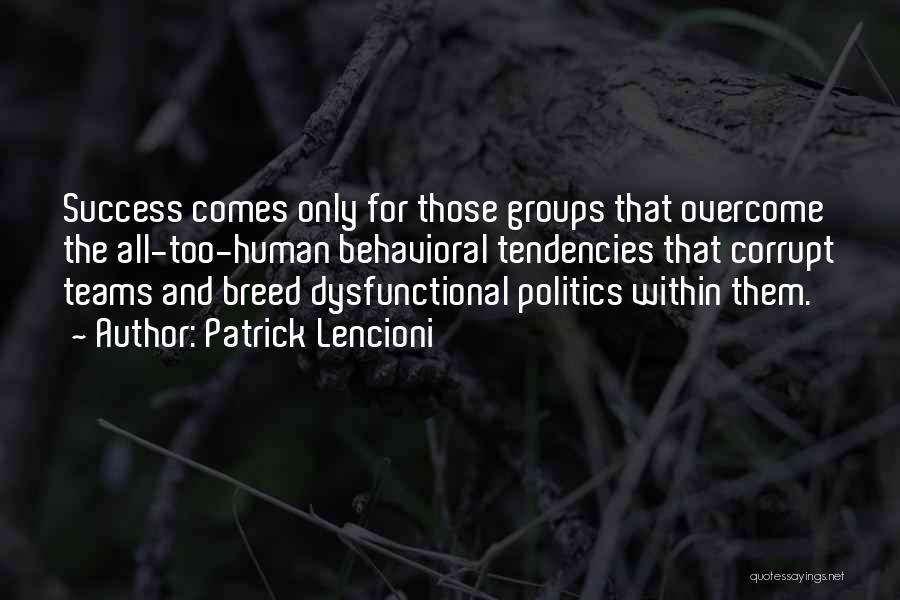
Success comes only for those groups that overcome the all-too-human behavioral tendencies that corrupt teams and breed dysfunctional politics within them. — Patrick Lencioni
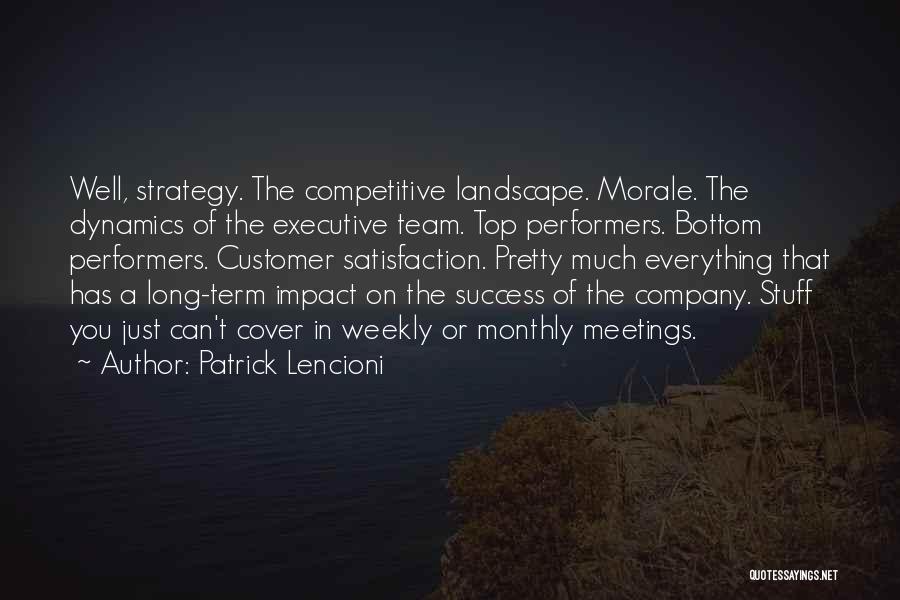
Well, strategy. The competitive landscape. Morale. The dynamics of the executive team. Top performers. Bottom performers. Customer satisfaction. Pretty much everything that has a long-term impact on the success of the company. Stuff you just can't cover in weekly or monthly meetings. — Patrick Lencioni
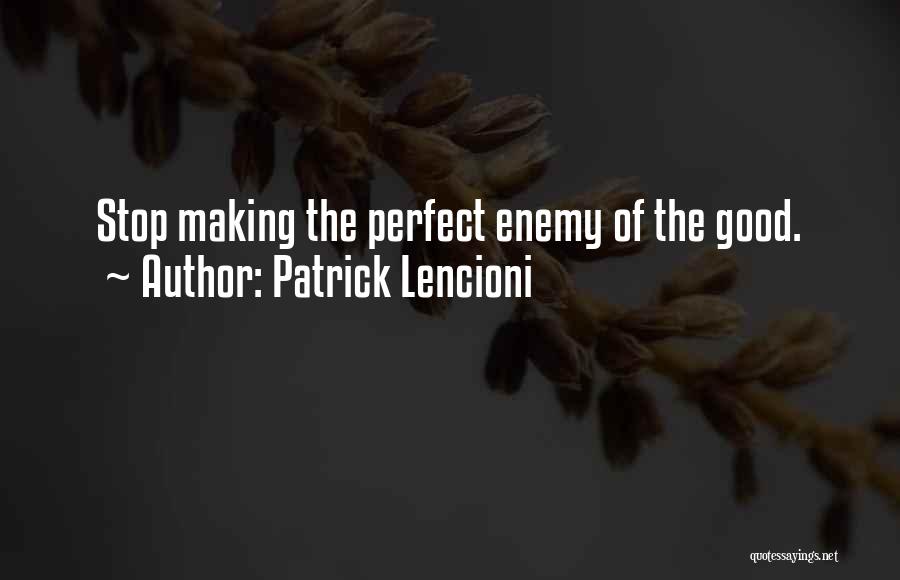
Stop making the perfect enemy of the good. — Patrick Lencioni
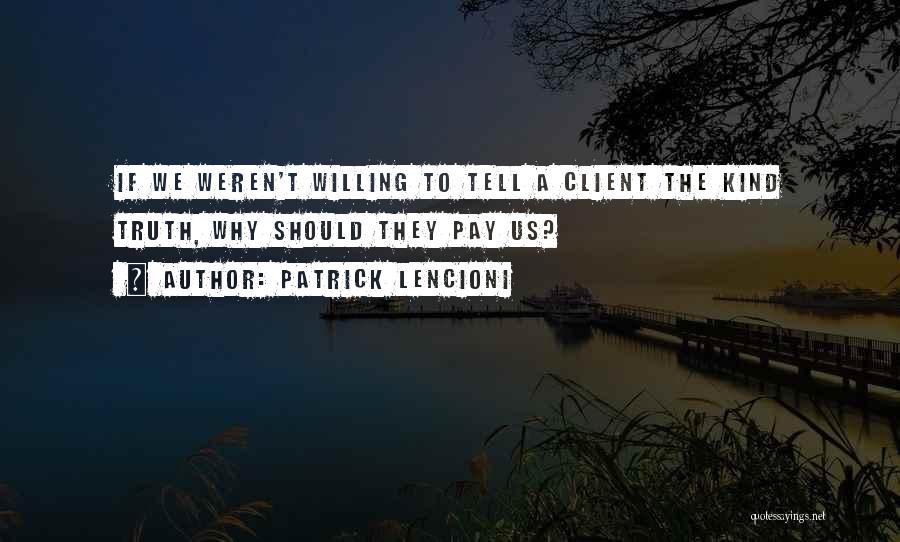
if we weren't willing to tell a client the kind truth, why should they pay us? — Patrick Lencioni
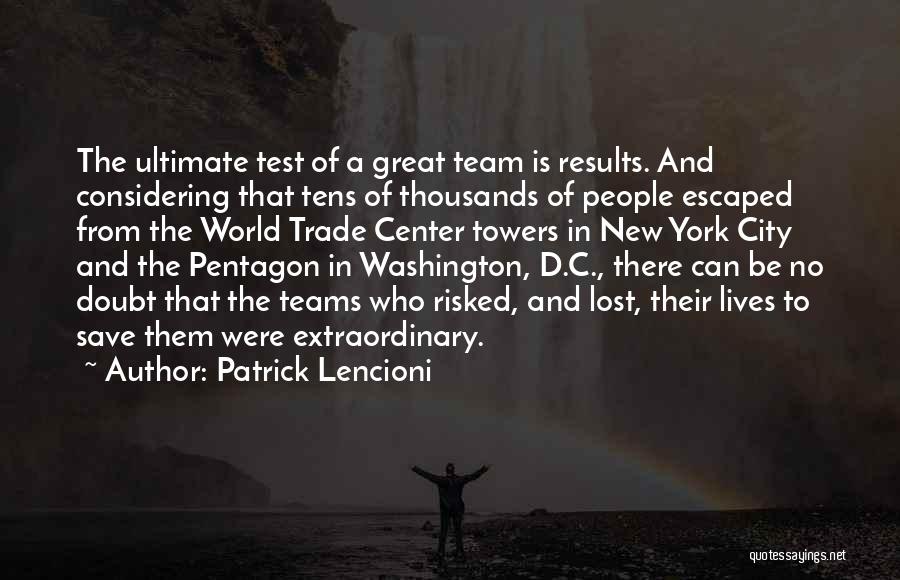
The ultimate test of a great team is results. And considering that tens of thousands of people escaped from the World Trade Center towers in New York City and the Pentagon in Washington, D.C., there can be no doubt that the teams who risked, and lost, their lives to save them were extraordinary. — Patrick Lencioni
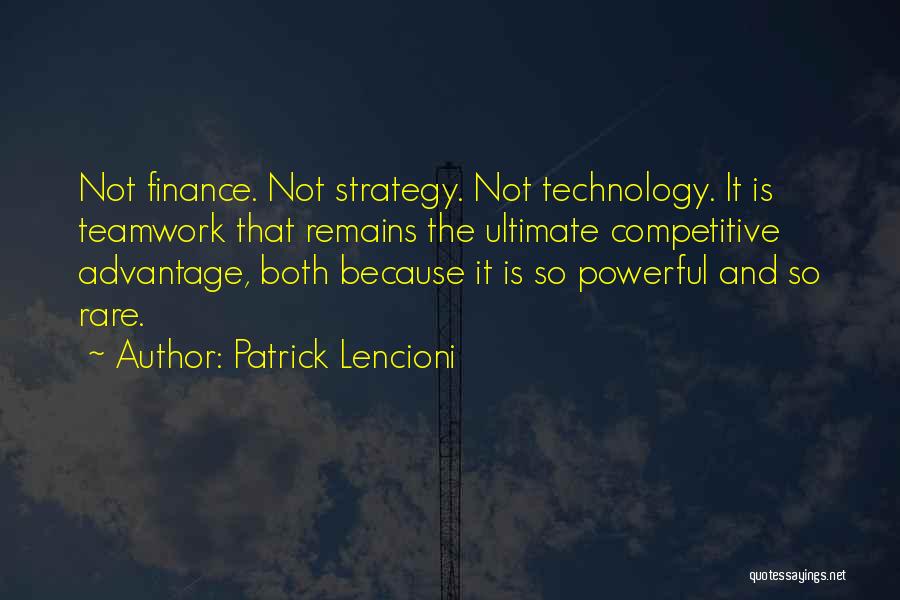
Not finance. Not strategy. Not technology. It is teamwork that remains the ultimate competitive advantage, both because it is so powerful and so rare. — Patrick Lencioni
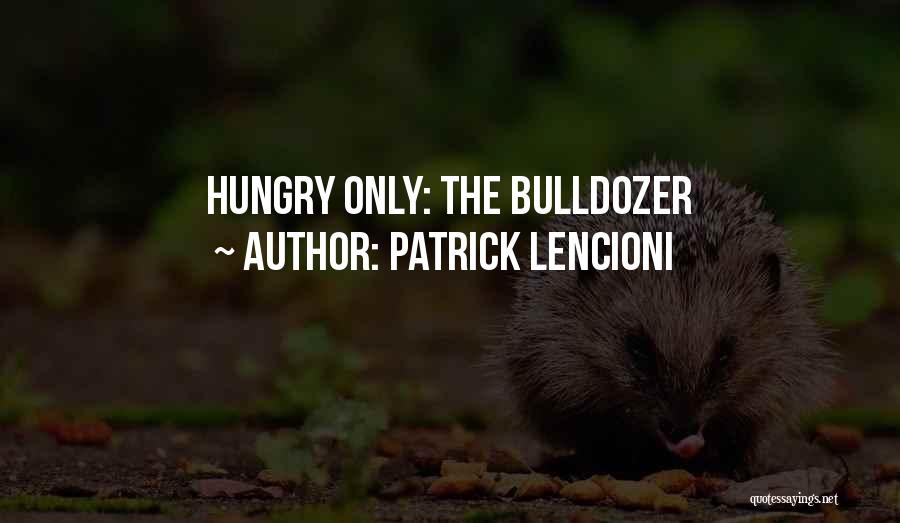
Hungry Only: The Bulldozer — Patrick Lencioni

No action, activity, or process is more central to a healthy organization than the meeting — Patrick Lencioni
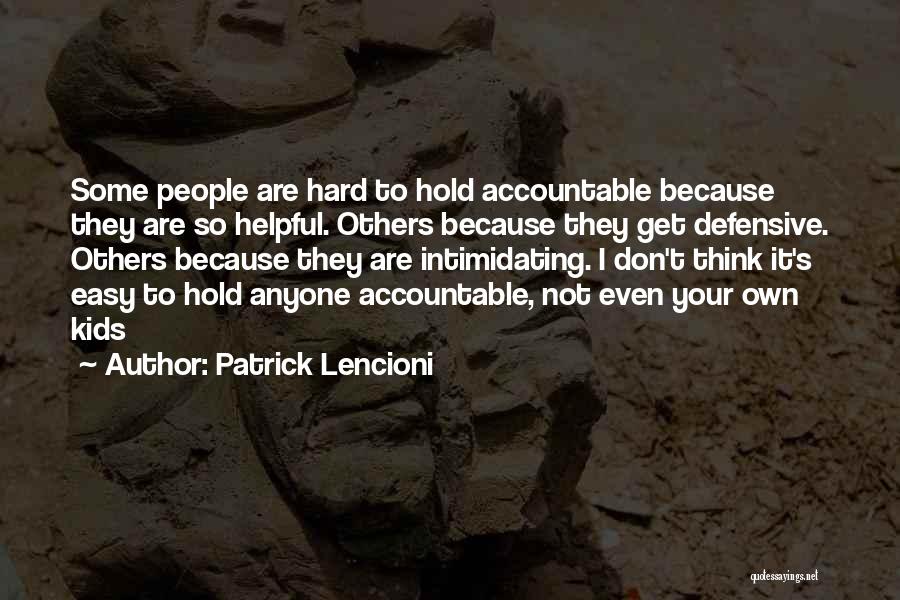
Some people are hard to hold accountable because they are so helpful. Others because they get defensive. Others because they are intimidating. I don't think it's easy to hold anyone accountable, not even your own kids — Patrick Lencioni
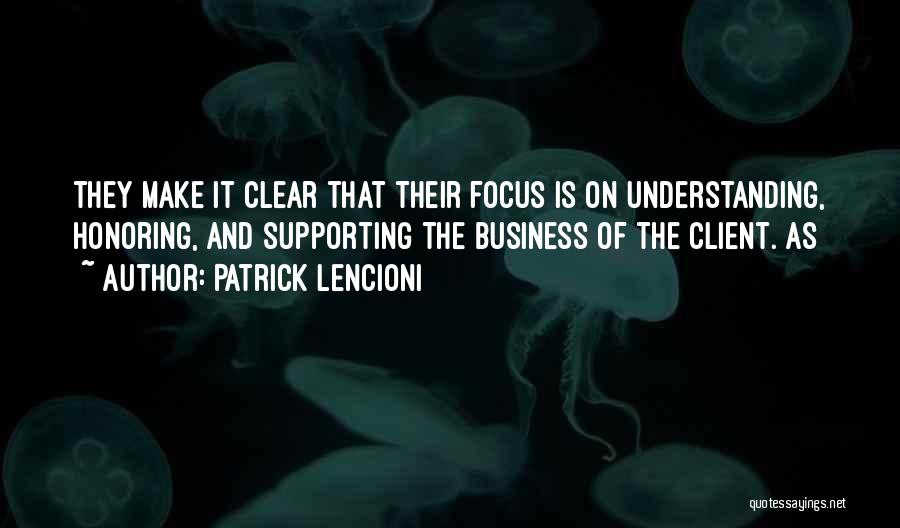
they make it clear that their focus is on understanding, honoring, and supporting the business of the client. As — Patrick Lencioni
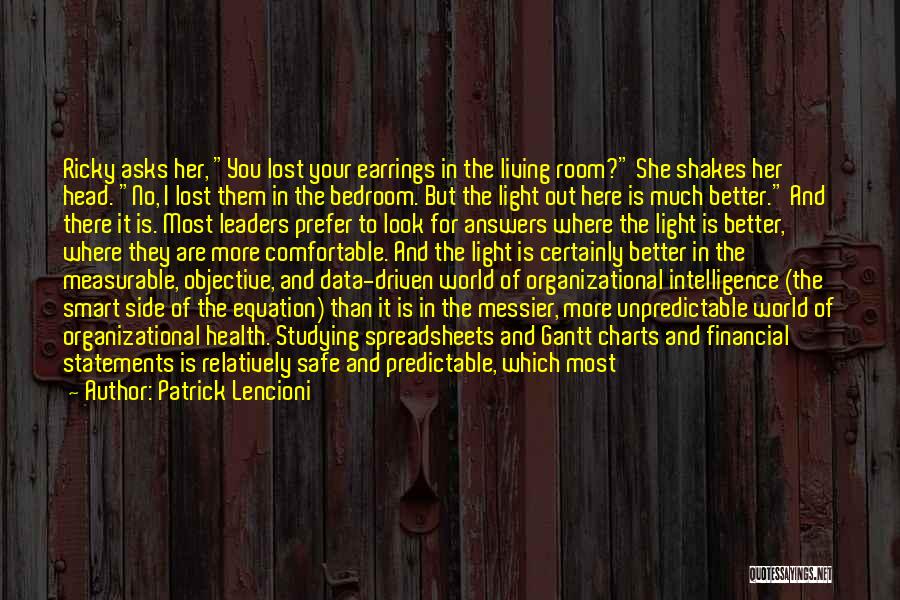
Ricky asks her, "You lost your earrings in the living room?" She shakes her head. "No, I lost them in the bedroom. But the light out here is much better." And there it is. Most leaders prefer to look for answers where the light is better, where they are more comfortable. And the light is certainly better in the measurable, objective, and data-driven world of organizational intelligence (the smart side of the equation) than it is in the messier, more unpredictable world of organizational health. Studying spreadsheets and Gantt charts and financial statements is relatively safe and predictable, which most executives prefer. That's how they've been trained, and that's where they're comfortable. What they usually want to avoid at all costs are subjective conversations that can easily become emotional and awkward. And organizational health is certainly fraught with the potential for subjective and awkward conversations. — Patrick Lencioni
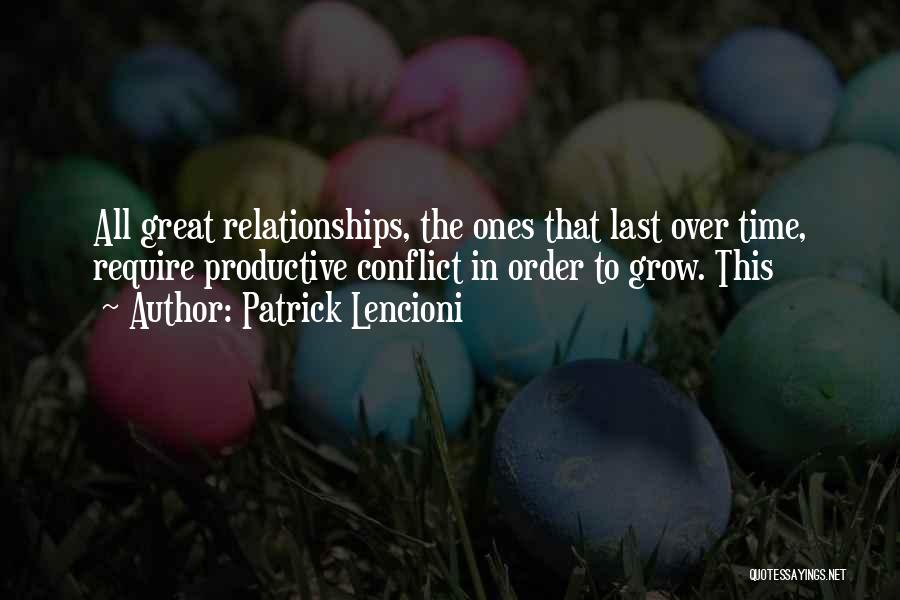
All great relationships, the ones that last over time, require productive conflict in order to grow. This — Patrick Lencioni
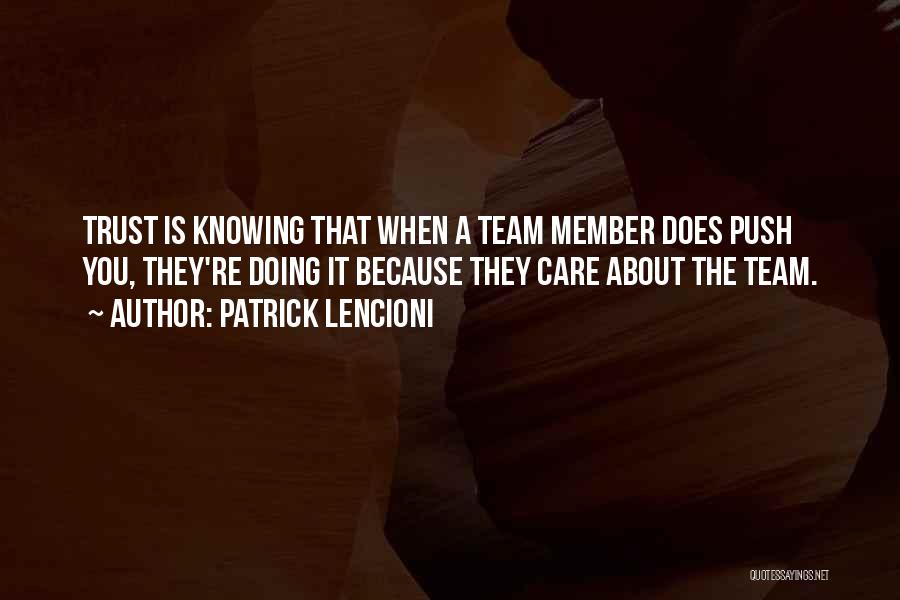
Trust is knowing that when a team member does push you, they're doing it because they care about the team. — Patrick Lencioni
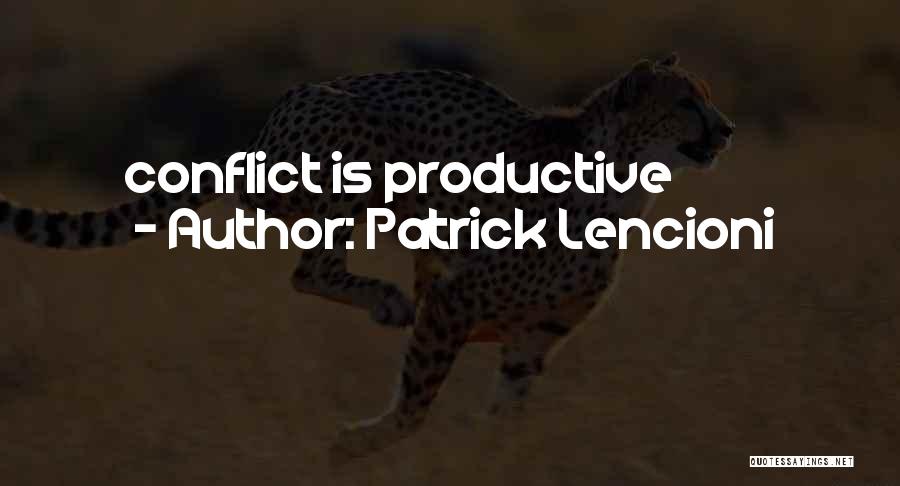
conflict is productive — Patrick Lencioni

Clients don't expect perfection from the service providers they hire, but they do expect honesty and transparency. There — Patrick Lencioni

teamwork is not a virtue. It is a choice - and a strategic one. — Patrick Lencioni
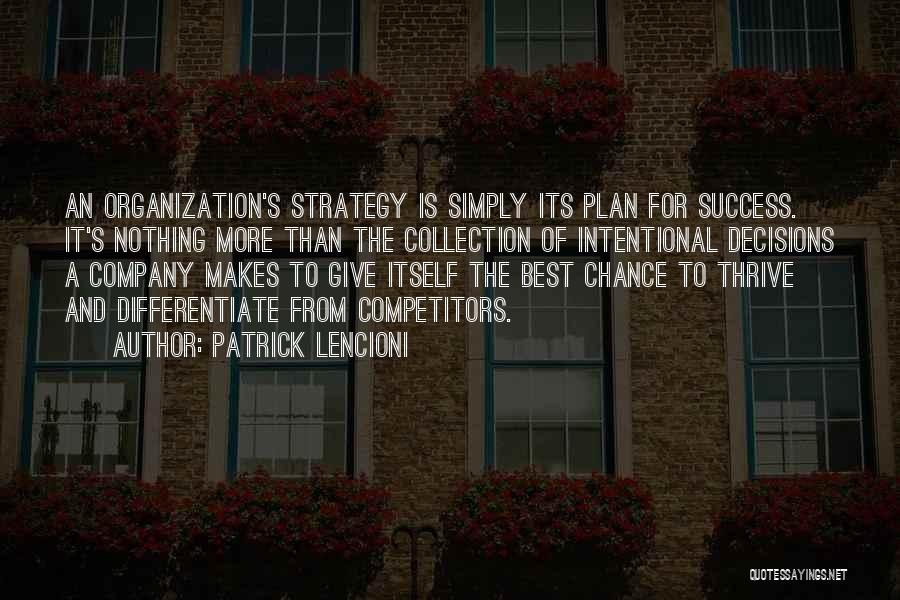
An organization's strategy is simply its plan for success. It's nothing more than the collection of intentional decisions a company makes to give itself the best chance to thrive and differentiate from competitors. — Patrick Lencioni
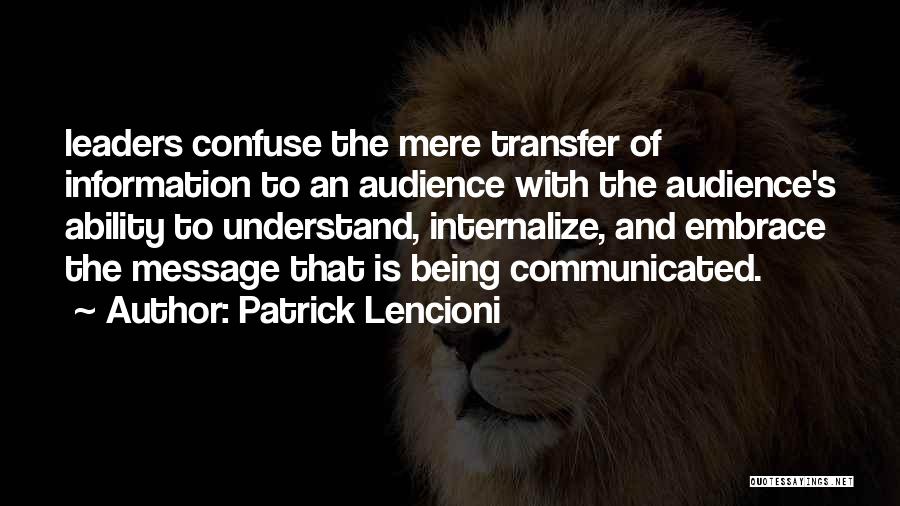
leaders confuse the mere transfer of information to an audience with the audience's ability to understand, internalize, and embrace the message that is being communicated. — Patrick Lencioni
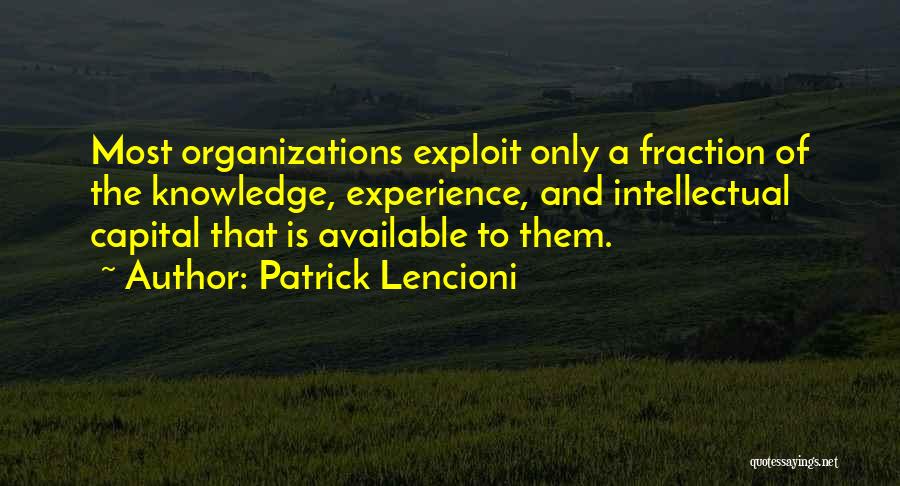
Most organizations exploit only a fraction of the knowledge, experience, and intellectual capital that is available to them. — Patrick Lencioni
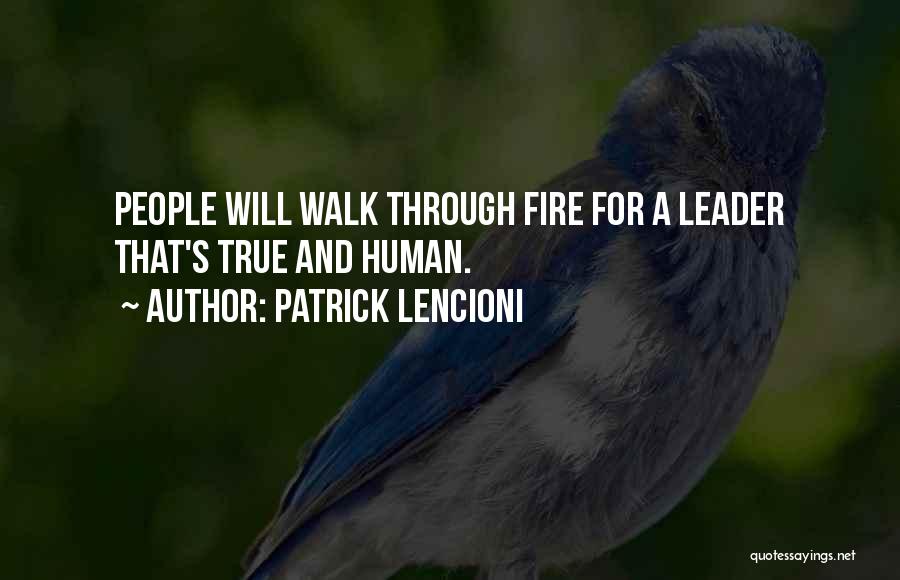
People will walk through fire for a leader that's true and human. — Patrick Lencioni

Open, frank communication is the lynchpin to teamwork. A fractured team is like a fractured bone; fixing it is always painful and sometimes you have to re-break it to heal it fully - and the re-break always hurts more because it is intentional. — Patrick Lencioni
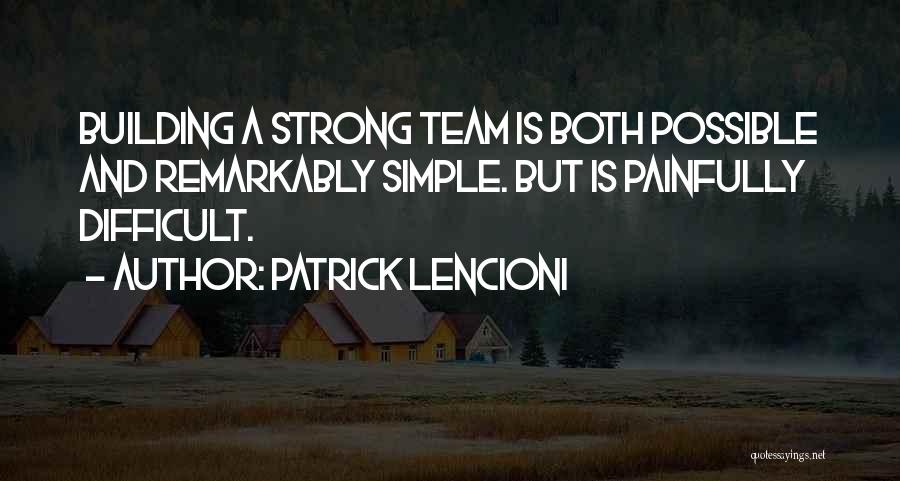
Building a strong team is both possible and remarkably simple. But is painfully difficult. — Patrick Lencioni

Ego is the ultimate killer on a team — Patrick Lencioni
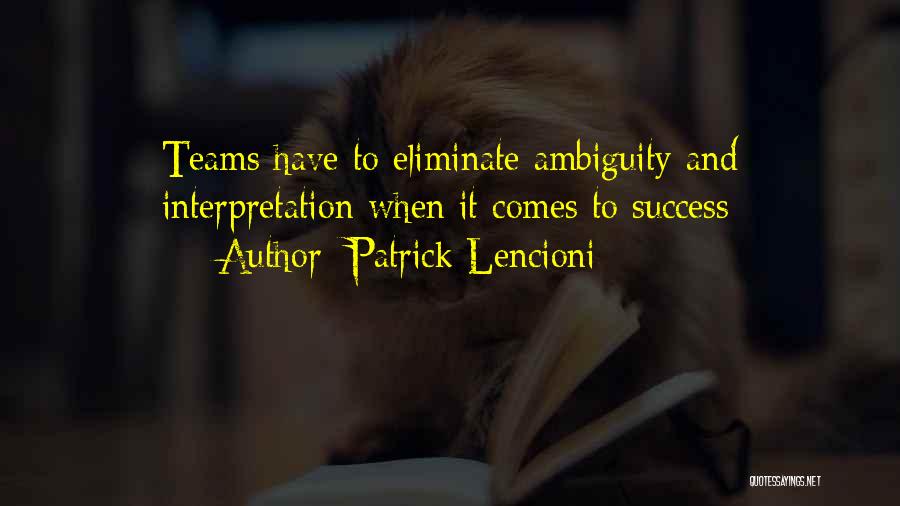
Teams have to eliminate ambiguity and interpretation when it comes to success — Patrick Lencioni
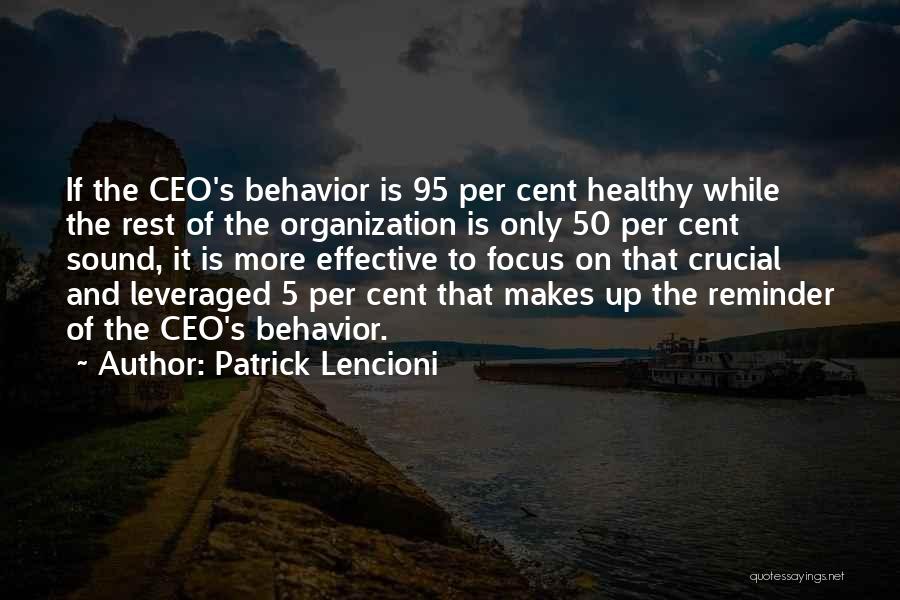
If the CEO's behavior is 95 per cent healthy while the rest of the organization is only 50 per cent sound, it is more effective to focus on that crucial and leveraged 5 per cent that makes up the reminder of the CEO's behavior. — Patrick Lencioni
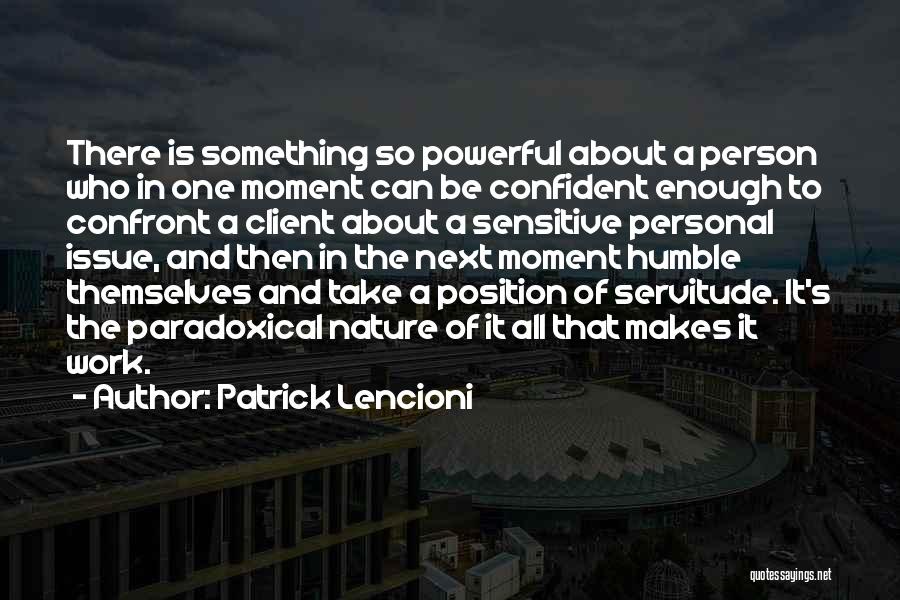
There is something so powerful about a person who in one moment can be confident enough to confront a client about a sensitive personal issue, and then in the next moment humble themselves and take a position of servitude. It's the paradoxical nature of it all that makes it work. — Patrick Lencioni
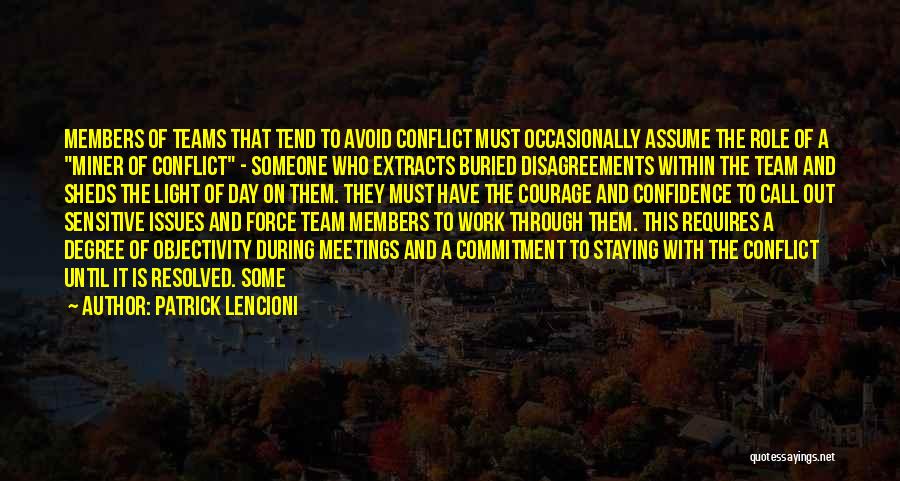
Members of teams that tend to avoid conflict must occasionally assume the role of a "miner of conflict" - someone who extracts buried disagreements within the team and sheds the light of day on them. They must have the courage and confidence to call out sensitive issues and force team members to work through them. This requires a degree of objectivity during meetings and a commitment to staying with the conflict until it is resolved. Some — Patrick Lencioni

When a group of intelligent people come together to talk about issues that matter, it is both natural and productive for disagreement to occur. Resolving those issues is what makes a meeting productive, engaging, even fun. — Patrick Lencioni
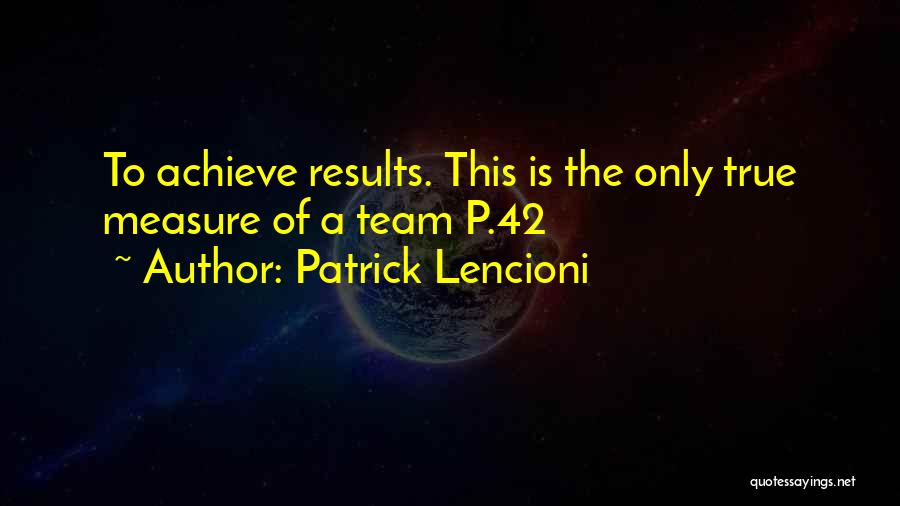
To achieve results. This is the only true measure of a team P.42 — Patrick Lencioni

It's about knowing that in certain moments you have to offer yourself up as a minor sacrifice to help them accomplish what they need to accomplish. Letting them abuse you, on the other hand, would be a terrible disservice. I know it seems like a fine line, but it's a real one, and it can be done. — Patrick Lencioni
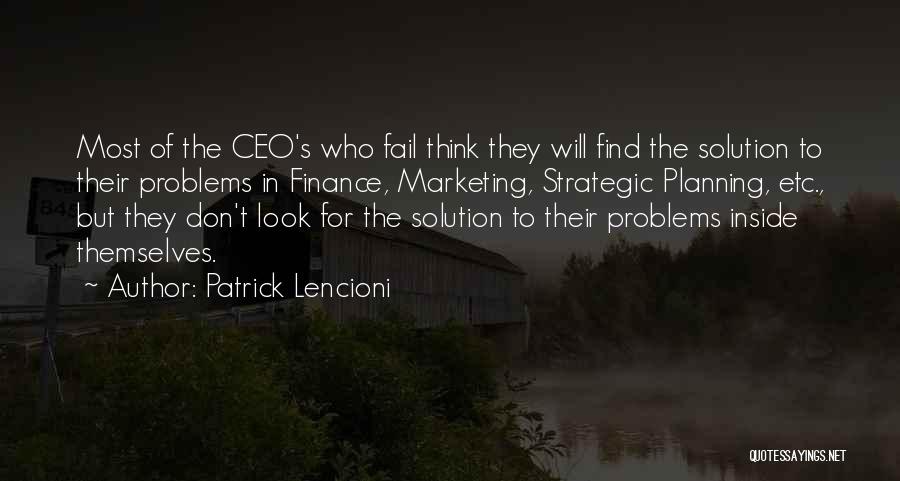
Most of the CEO's who fail think they will find the solution to their problems in Finance, Marketing, Strategic Planning, etc., but they don't look for the solution to their problems inside themselves. — Patrick Lencioni

Team members have to be focused on the collective good of the team. Too often, they focus their attention on their department, their budget, their career aspirations, their egos. — Patrick Lencioni
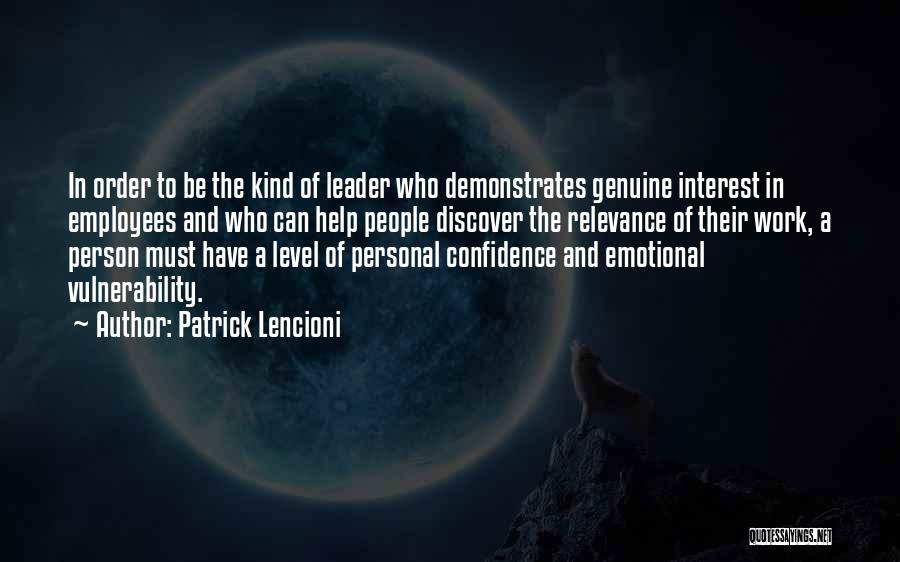
In order to be the kind of leader who demonstrates genuine interest in employees and who can help people discover the relevance of their work, a person must have a level of personal confidence and emotional vulnerability. — Patrick Lencioni
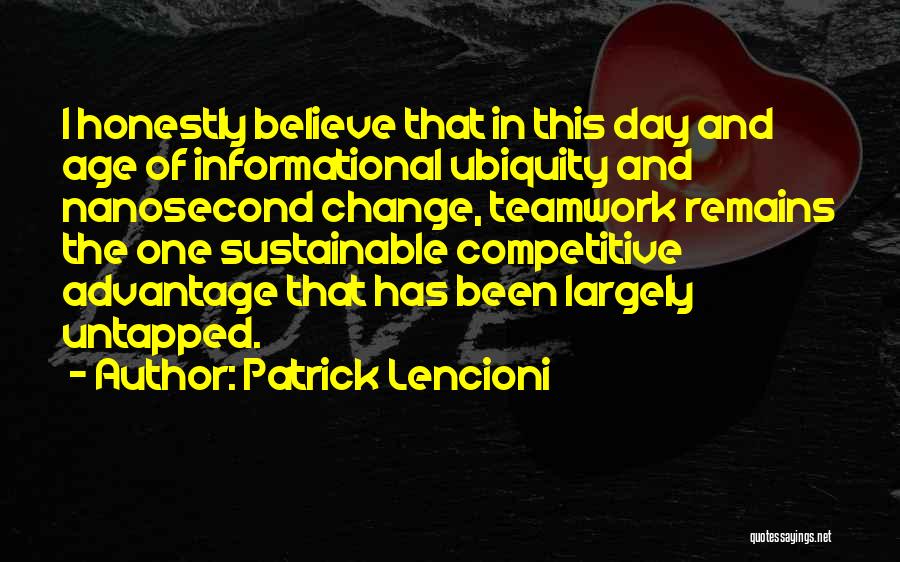
I honestly believe that in this day and age of informational ubiquity and nanosecond change, teamwork remains the one sustainable competitive advantage that has been largely untapped. — Patrick Lencioni

Ironically, most leaders of meetings go out of their way to eliminate or minimize drama and avoid the healthy conflict that results from it. Which only drains the interest of employees. — Patrick Lencioni
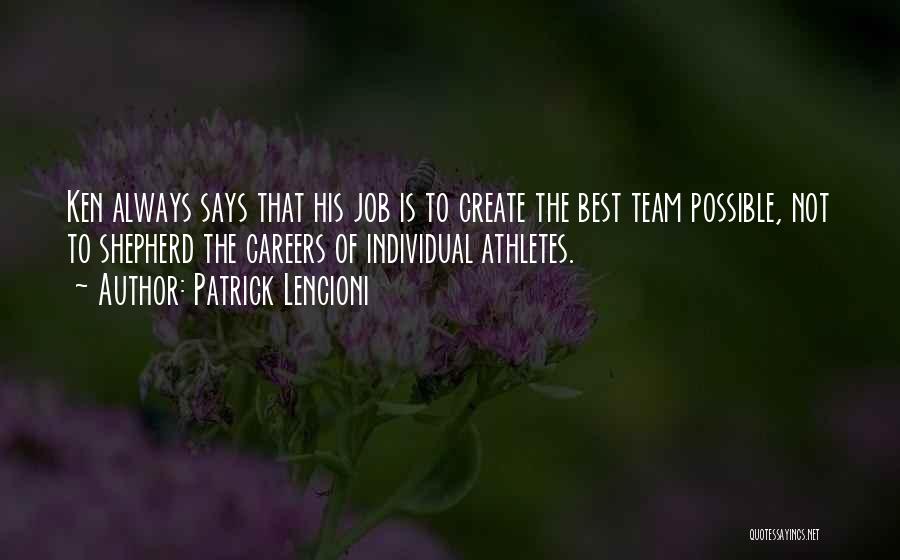
Ken always says that his job is to create the best team possible, not to shepherd the careers of individual athletes. — Patrick Lencioni
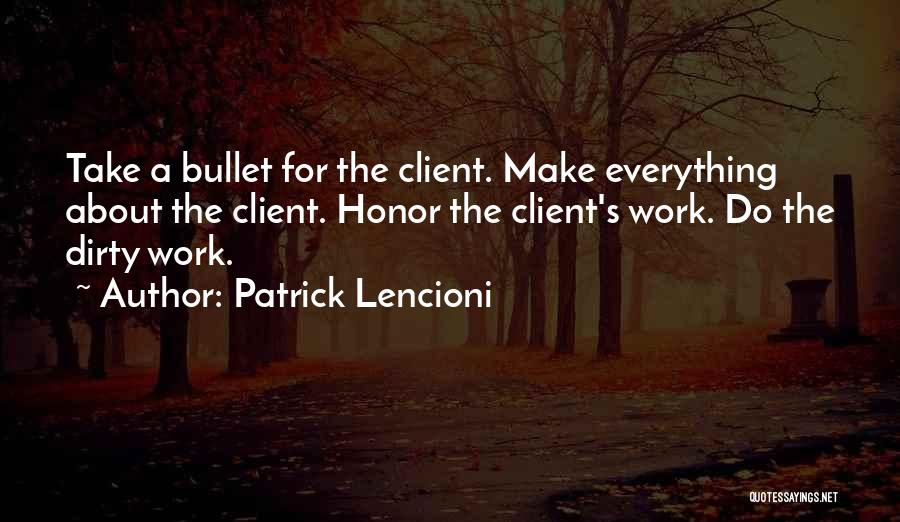
Take a bullet for the client. Make everything about the client. Honor the client's work. Do the dirty work. — Patrick Lencioni
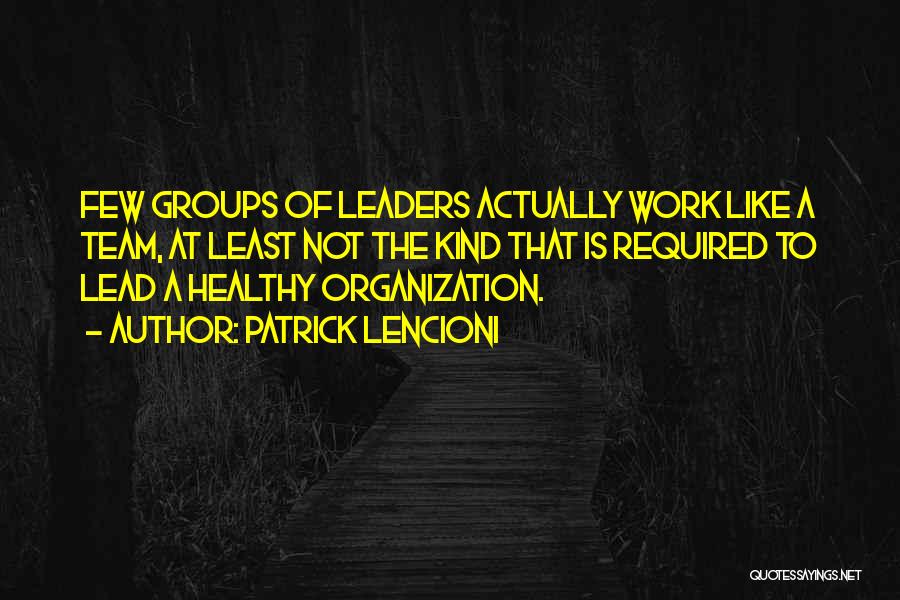
few groups of leaders actually work like a team, at least not the kind that is required to lead a healthy organization. — Patrick Lencioni

During the Weekly Tactical, there are two overriding goals: resolution of issues and reinforcement of clarity. Obstacles need to be identified and removed, and everyone needs to be on the same page. — Patrick Lencioni
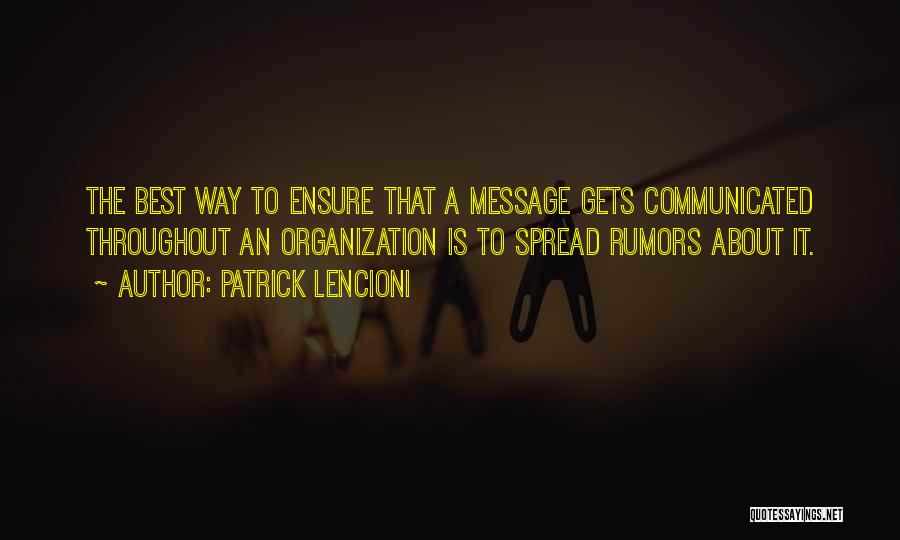
the best way to ensure that a message gets communicated throughout an organization is to spread rumors about it. — Patrick Lencioni

Personal growth might not be so bad after all, I decided. — Patrick Lencioni
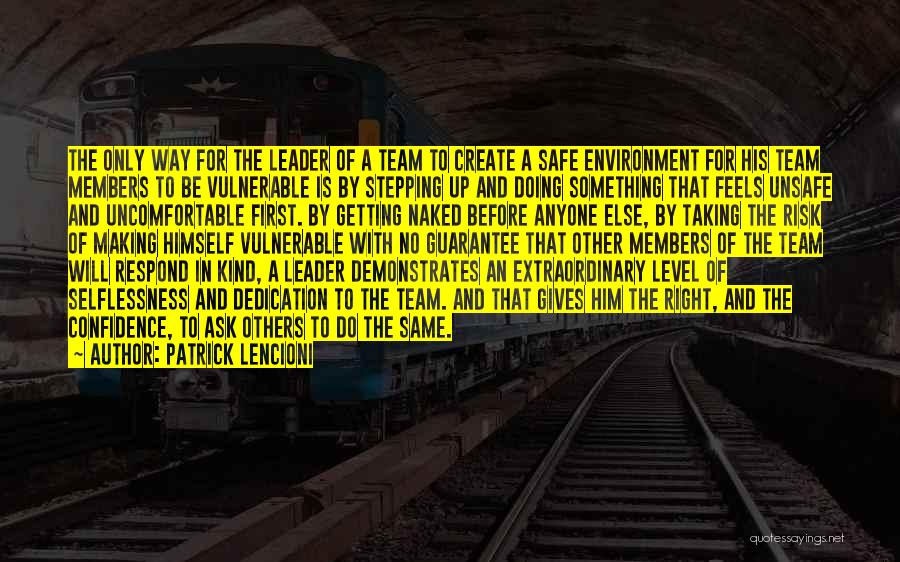
The only way for the leader of a team to create a safe environment for his team members to be vulnerable is by stepping up and doing something that feels unsafe and uncomfortable first. By getting naked before anyone else, by taking the risk of making himself vulnerable with no guarantee that other members of the team will respond in kind, a leader demonstrates an extraordinary level of selflessness and dedication to the team. And that gives him the right, and the confidence, to ask others to do the same. — Patrick Lencioni
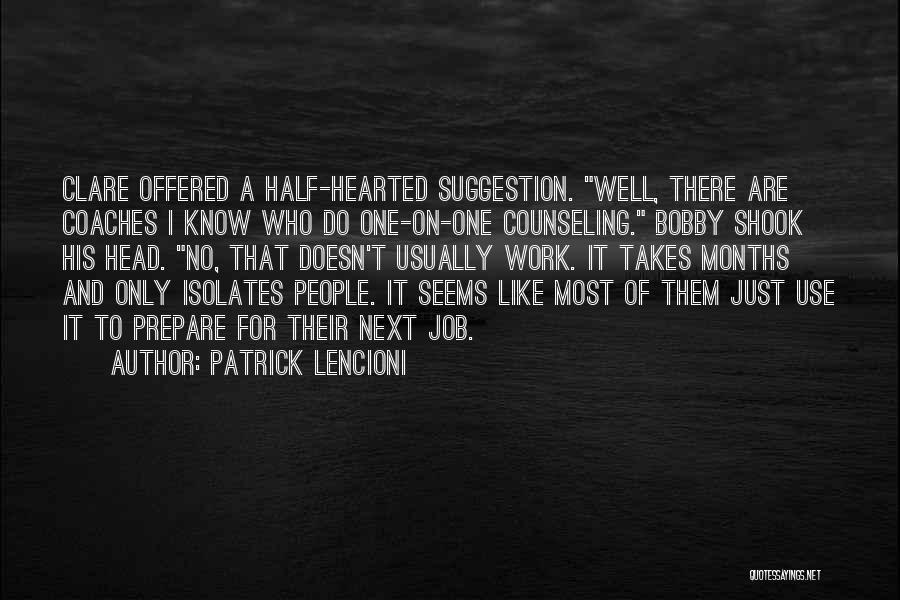
Clare offered a half-hearted suggestion. "Well, there are coaches I know who do one-on-one counseling." Bobby shook his head. "No, that doesn't usually work. It takes months and only isolates people. It seems like most of them just use it to prepare for their next job. — Patrick Lencioni
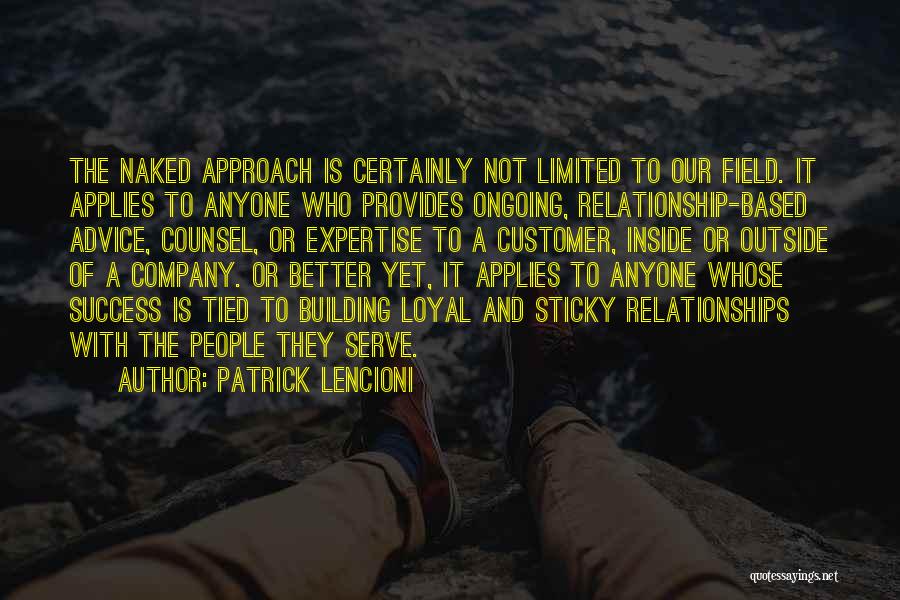
the naked approach is certainly not limited to our field. It applies to anyone who provides ongoing, relationship-based advice, counsel, or expertise to a customer, inside or outside of a company. Or better yet, it applies to anyone whose success is tied to building loyal and sticky relationships with the people they serve. — Patrick Lencioni
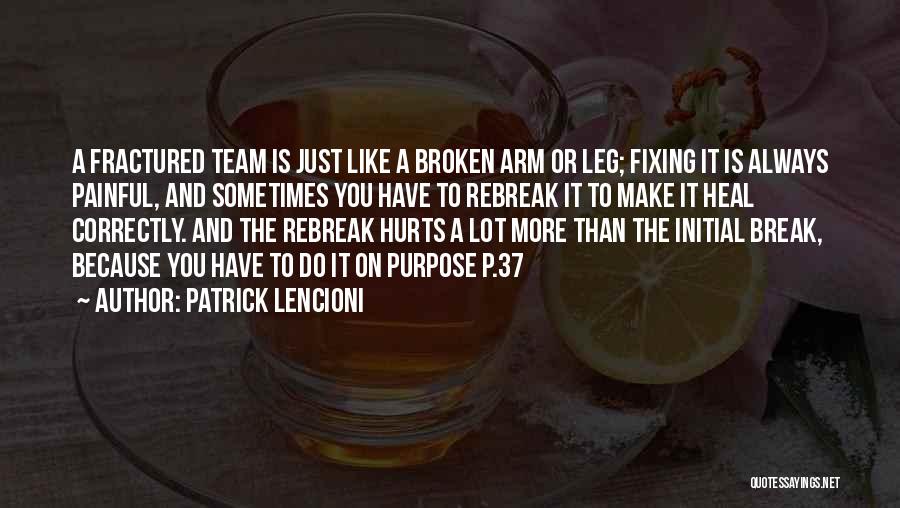
A fractured team is just like a broken arm or leg; fixing it is always painful, and sometimes you have to rebreak it to make it heal correctly. And the rebreak hurts a lot more than the initial break, because you have to do it on purpose P.37 — Patrick Lencioni
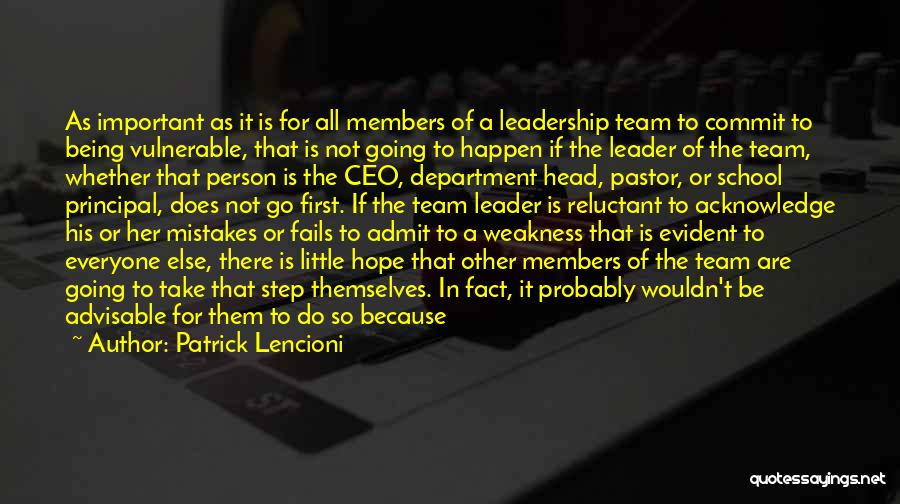
As important as it is for all members of a leadership team to commit to being vulnerable, that is not going to happen if the leader of the team, whether that person is the CEO, department head, pastor, or school principal, does not go first. If the team leader is reluctant to acknowledge his or her mistakes or fails to admit to a weakness that is evident to everyone else, there is little hope that other members of the team are going to take that step themselves. In fact, it probably wouldn't be advisable for them to do so because there is a good chance that their vulnerability would be neither encouraged nor rewarded. — Patrick Lencioni
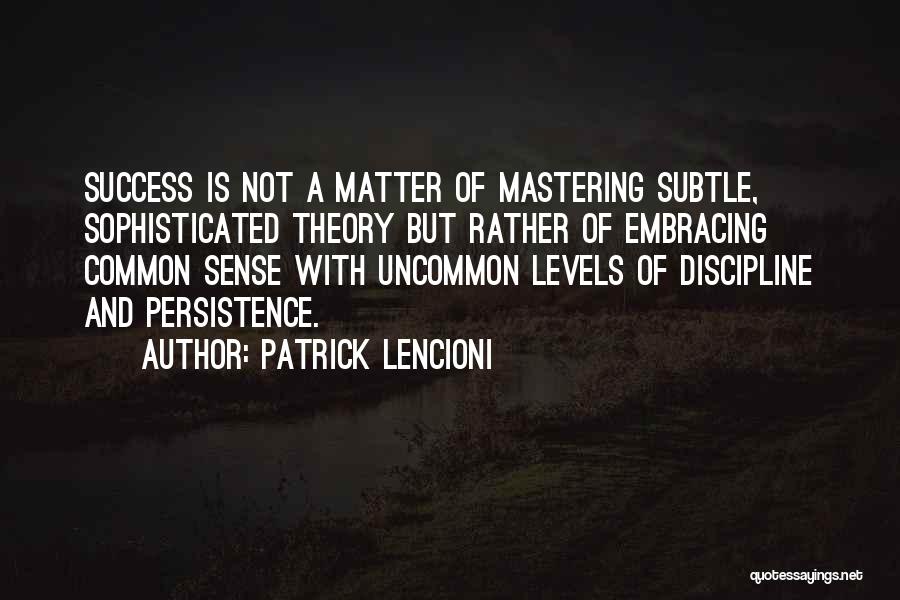
Success is not a matter of mastering subtle, sophisticated theory but rather of embracing common sense with uncommon levels of discipline and persistence. — Patrick Lencioni
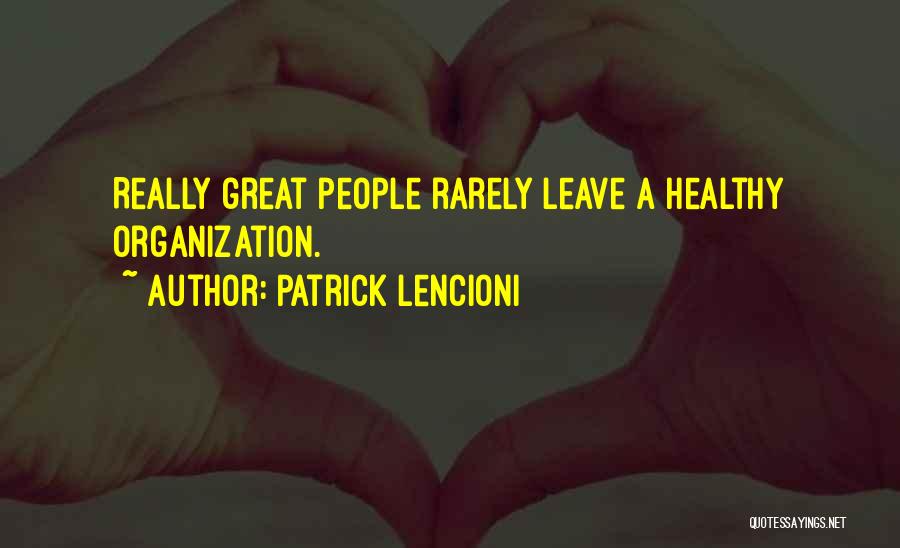
Really great people rarely leave a healthy organization. — Patrick Lencioni
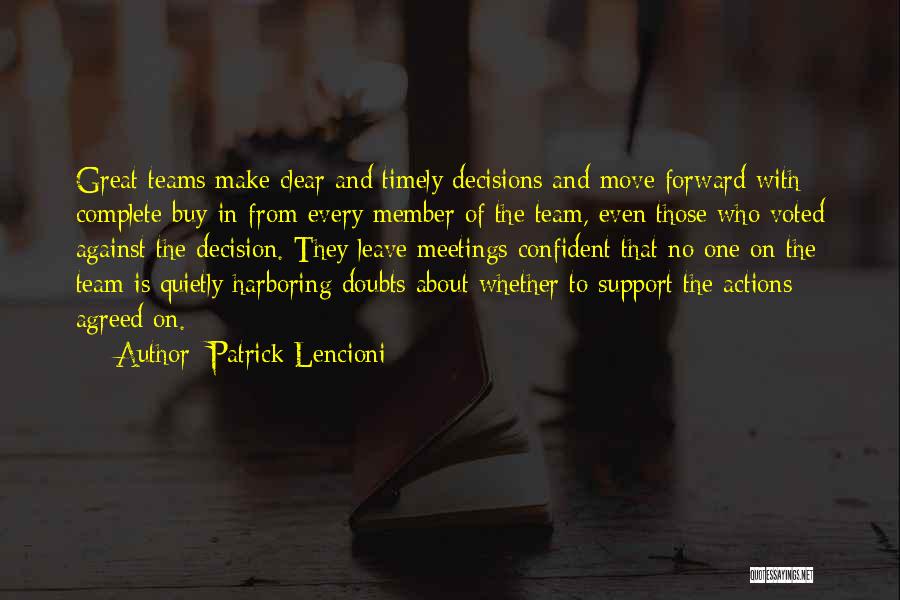
Great teams make clear and timely decisions and move forward with complete buy-in from every member of the team, even those who voted against the decision. They leave meetings confident that no one on the team is quietly harboring doubts about whether to support the actions agreed on. — Patrick Lencioni
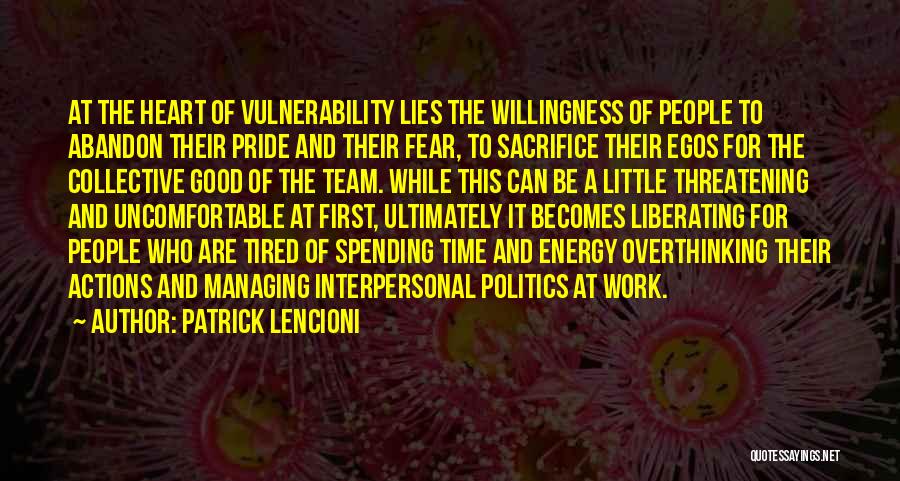
At the heart of vulnerability lies the willingness of people to abandon their pride and their fear, to sacrifice their egos for the collective good of the team. While this can be a little threatening and uncomfortable at first, ultimately it becomes liberating for people who are tired of spending time and energy overthinking their actions and managing interpersonal politics at work. — Patrick Lencioni

All of this highlights one of the most challenging obstacles that prevents teams from taking the time to work on how they work together: adrenaline addiction. Many if not most of the executives and managers I know have become so hooked on the rush of urgent demands and out-of-control schedules that the prospect of slowing down to review, think, talk, and develop themselves is too anxiety-inducing to consider. Of course, this is exactly what they need, which is what addiction is all about - doing things that are bad for you even when confronted with evidence that they are, well, bad for you. — Patrick Lencioni

I believe in the old saying that if you can't measure something, you can't improve it. — Patrick Lencioni
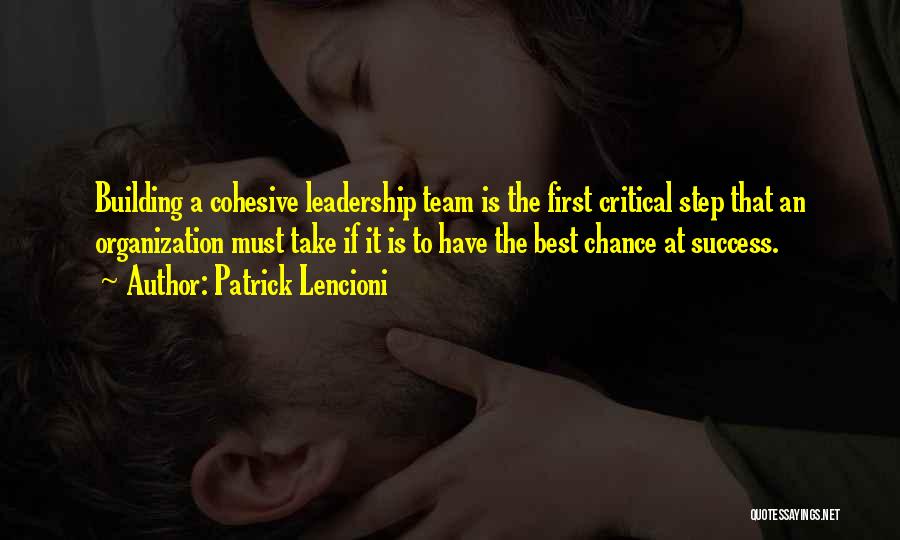
Building a cohesive leadership team is the first critical step that an organization must take if it is to have the best chance at success. — Patrick Lencioni
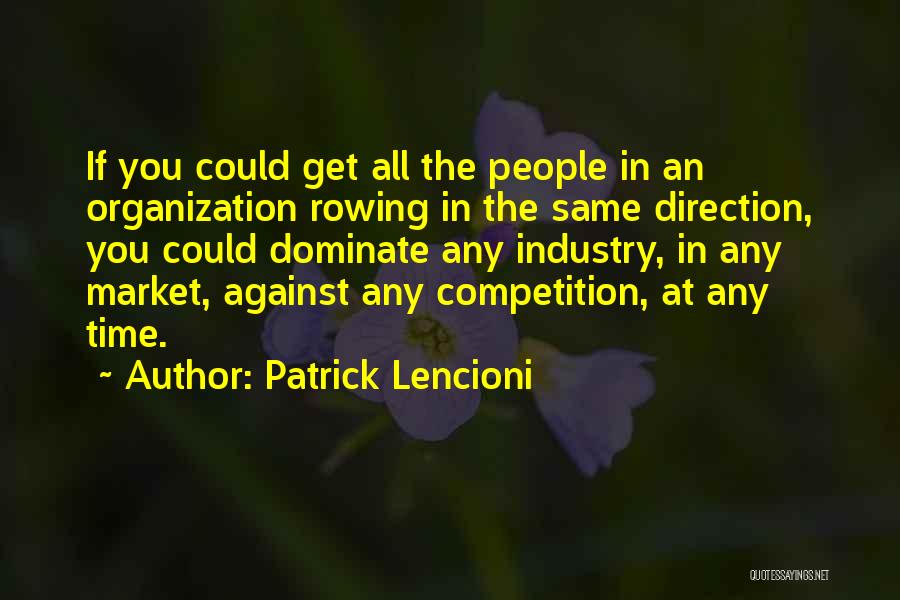
If you could get all the people in an organization rowing in the same direction, you could dominate any industry, in any market, against any competition, at any time. — Patrick Lencioni
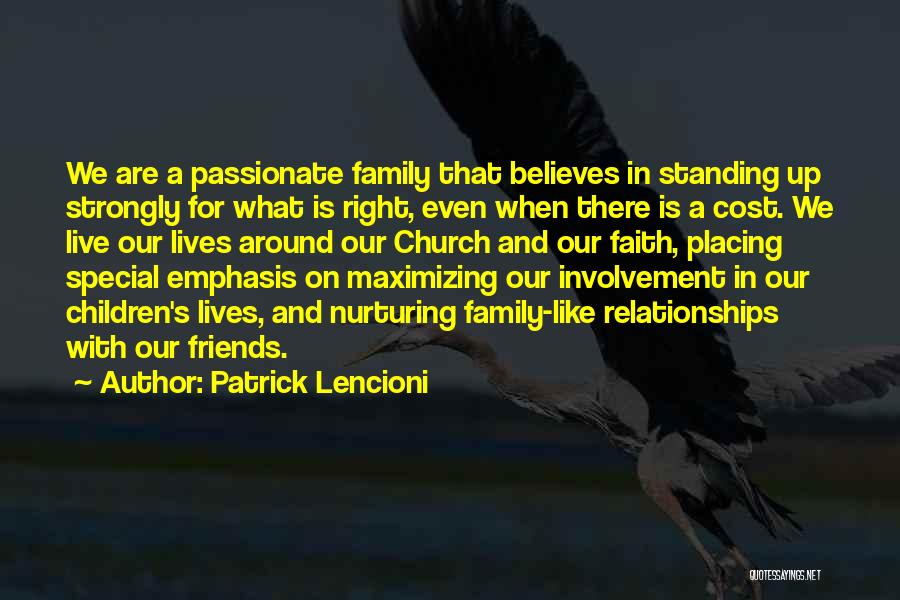
We are a passionate family that believes in standing up strongly for what is right, even when there is a cost. We live our lives around our Church and our faith, placing special emphasis on maximizing our involvement in our children's lives, and nurturing family-like relationships with our friends. — Patrick Lencioni
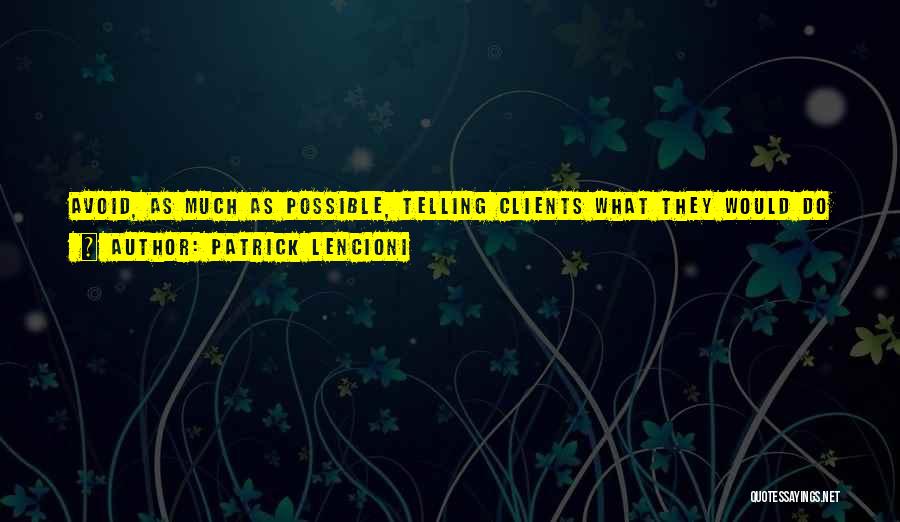
avoid, as much as possible, telling clients what they would do if they were to be hired; instead, they just start serving them as though they were already a client. And — Patrick Lencioni
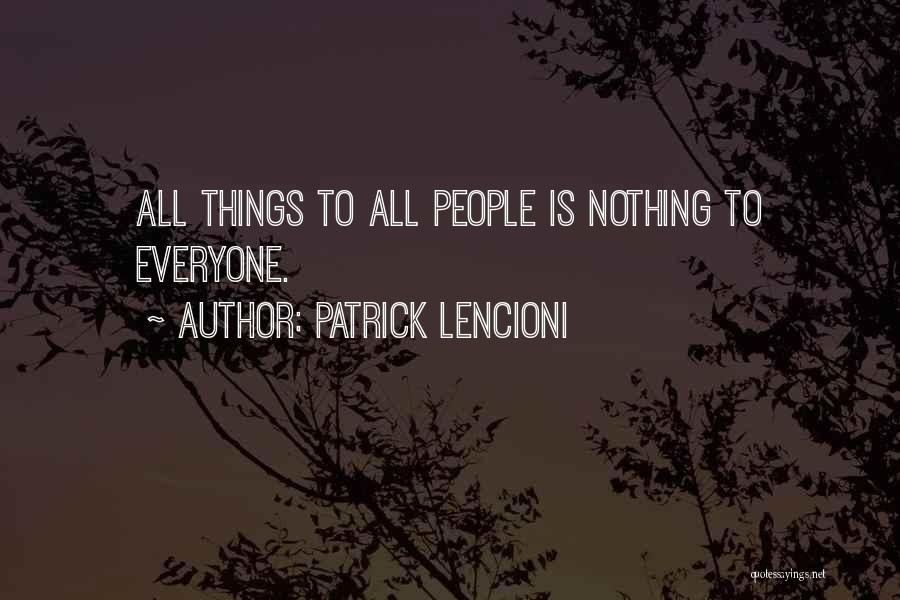
All things to all people is nothing to everyone. — Patrick Lencioni
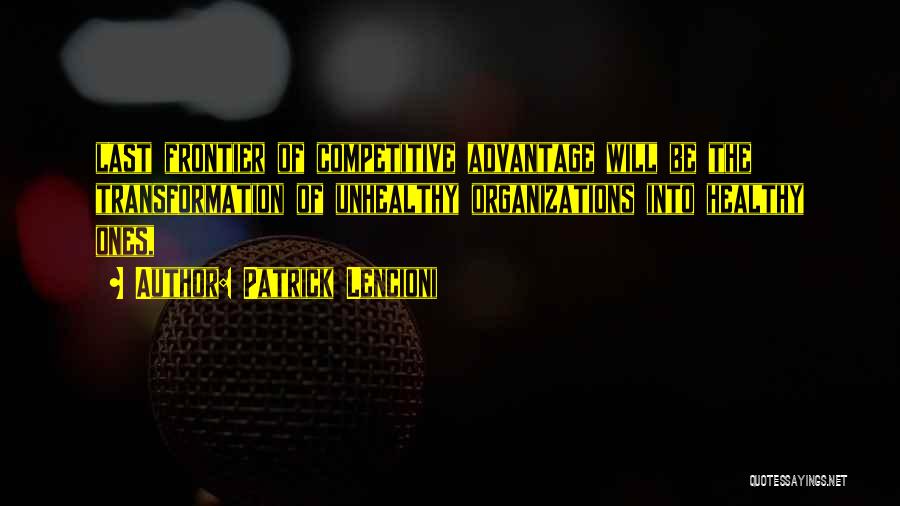
last frontier of competitive advantage will be the transformation of unhealthy organizations into healthy ones, — Patrick Lencioni
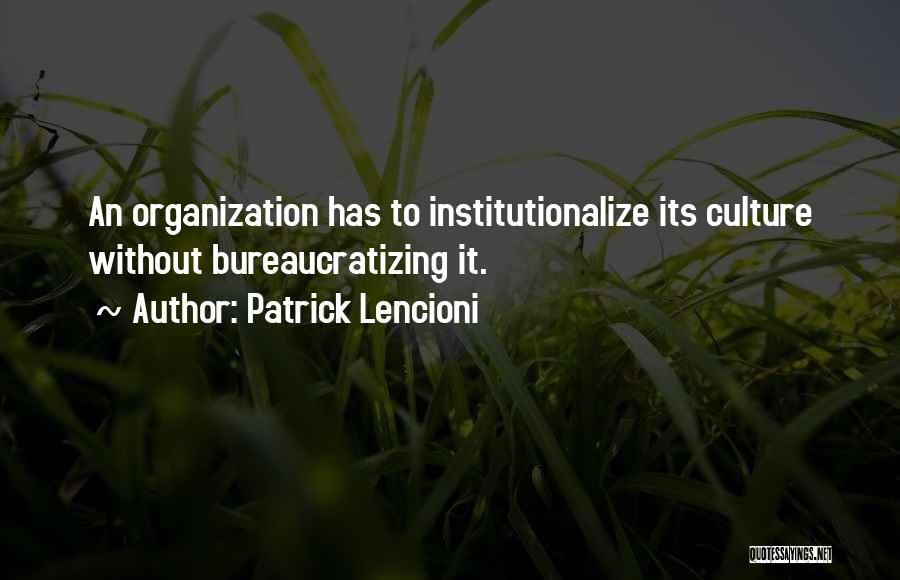
An organization has to institutionalize its culture without bureaucratizing it. — Patrick Lencioni
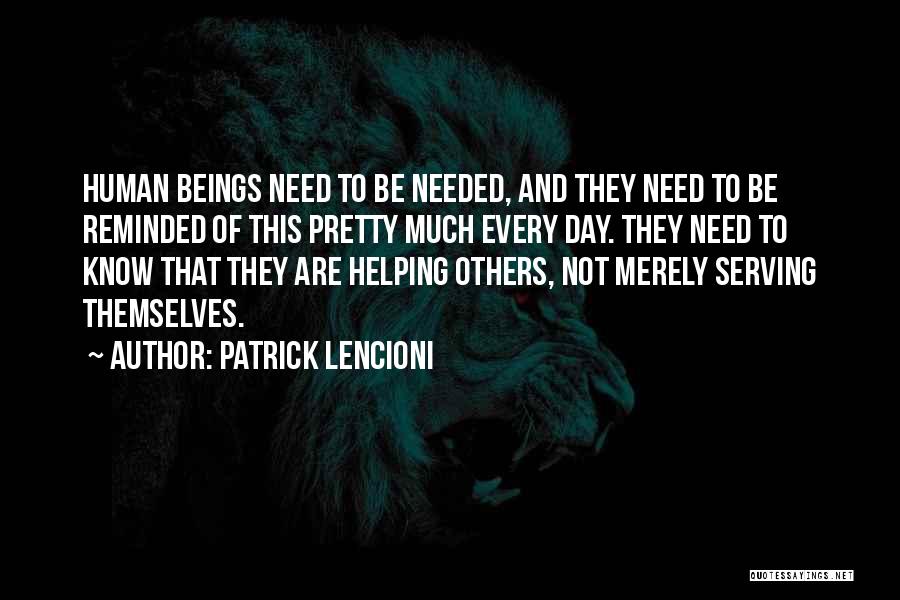
Human beings need to be needed, and they need to be reminded of this pretty much every day. They need to know that they are helping others, not merely serving themselves. — Patrick Lencioni
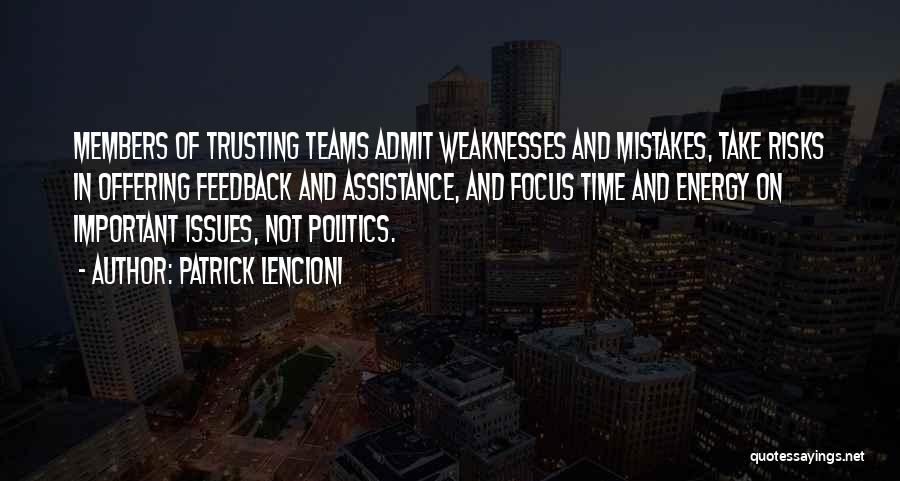
Members of trusting teams admit weaknesses and mistakes, take risks in offering feedback and assistance, and focus time and energy on important issues, not politics. — Patrick Lencioni
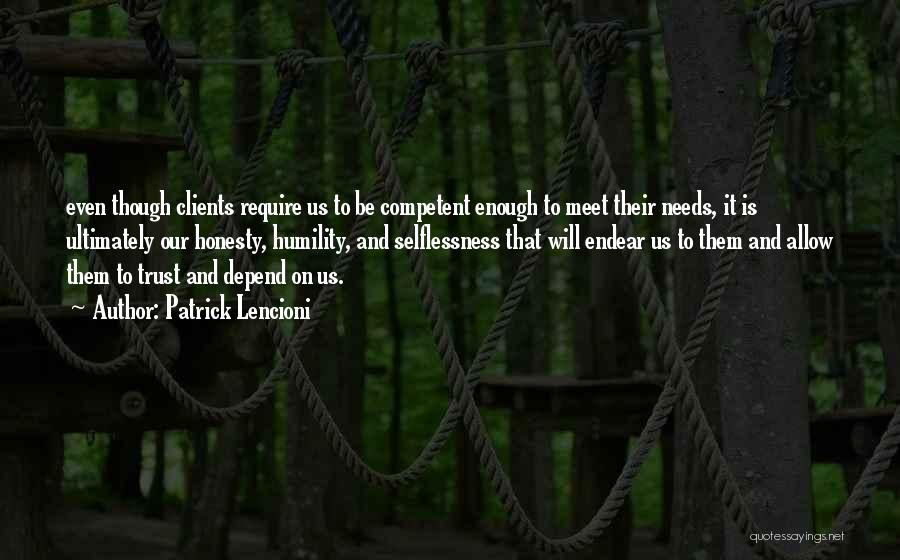
even though clients require us to be competent enough to meet their needs, it is ultimately our honesty, humility, and selflessness that will endear us to them and allow them to trust and depend on us. — Patrick Lencioni

Choose your companions before you choose your road. — Patrick Lencioni

The key ingredient to building trust is not time. It is courage. — Patrick Lencioni







